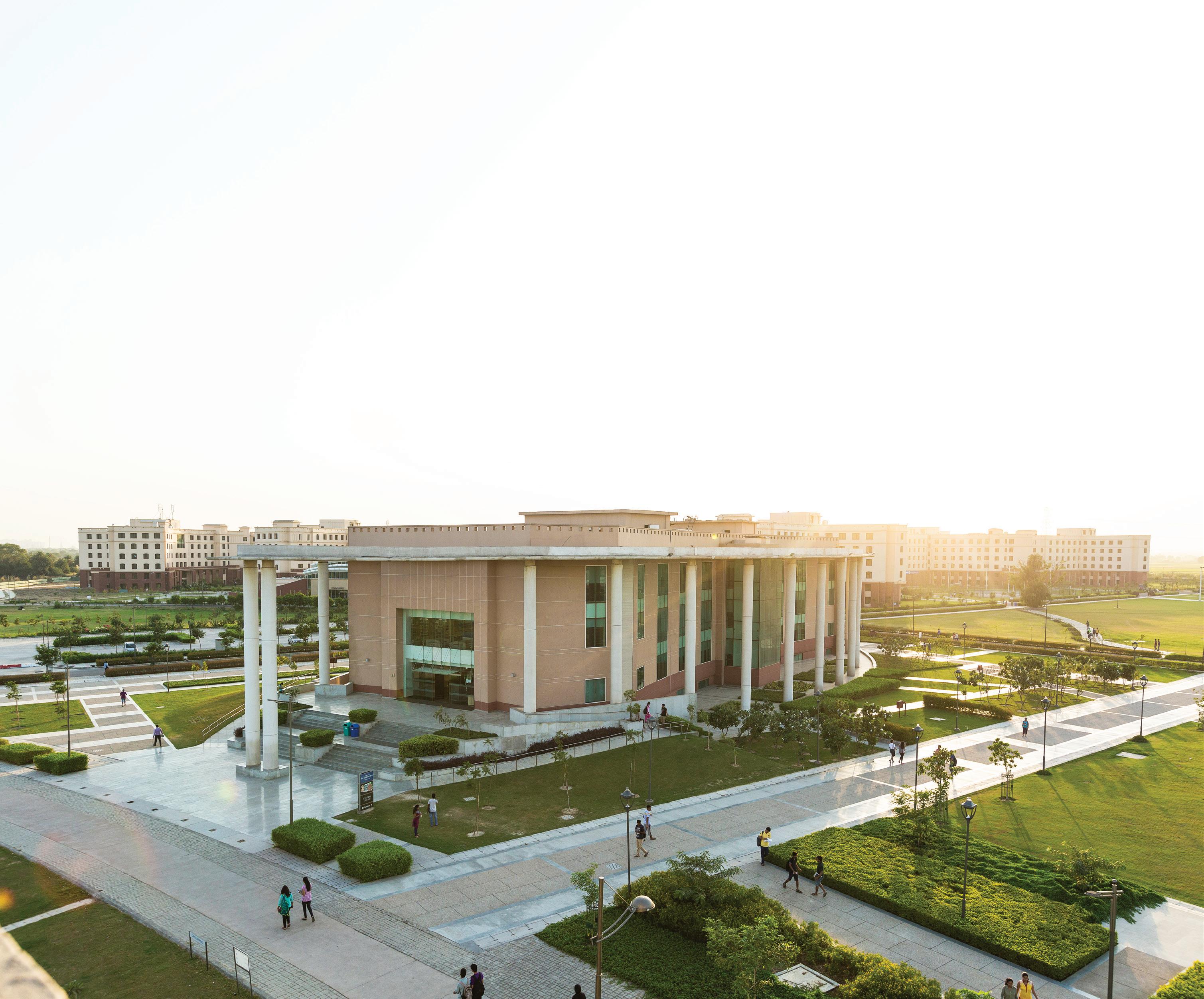SHSS
SCHOOL OF HUMANITIES AND SOCIAL SCIENCES









Shiv Nadar University Delhi-NCR is a premier centre of multidisciplinary student-centric education and research. It was set up in 2011 by the Shiv Nadar Foundation, a philanthropic foundation established by Mr. Shiv Nadar, the founder of HCL. The University is a globally acclaimed centre for learning, research and innovation. It is the youngest university in the country to be recognised as an Institution of Eminence by the Government of India.
Through its innovative curriculum and interdisciplinary focus, the University is bringing a paradigm shift in higher education. Its four-year Research Degree at the undergraduate level offers an in-depth disciplinary grounding. Innovative curricula and exciting classroom conversations enable the development of skills in analytical thinking, communication and original approaches to critical problems. Exposure to different and often new subjects fosters diversity in thought and perspectives.
The University offers rigorous disciplinary training in its post-graduate courses and has emerged as a centre of research excellence in its doctoral programs.
At the undergraduate level, Shiv Nadar University offers a four-year research degree. Students gain disciplinary knowledge in the Major program. Elective courses and Minor degrees create exciting academic conversations that enable the development of innovative perspectives.
Research is the cornerstone of Shiv Nadar University’s academic project. Alongside basic and applied research, publication and creative expression, the university actively encourages interdisciplinary research among students and faculty. The flagship OUR (Opportunities for Undergraduate Research) encapsulates the university's academic mission.

In over a decade since its founding, Shiv Nadar University has attracted an impressive faculty lineup across various disciplines from the top universities in India and worldwide. The reasons are simple: it offers an open and intellectually stimulating environment and fosters research of a very high calibre. One star faculty brings two, two bring four and so on, thus creating a virtuous cycle of attracting talent to the delightful 286-acre green campus. Some faculty advise the government. Few are famous authors and researchers. Most are thought leaders in their fields, mentoring students to help them achieve their full potential.
Our residential campus is a lively space where students from all parts of the country bring a variety of cultures, languages, food and celebrations. Different student clubs and programs keep the university abuzz with activities, becoming spaces where talents are discovered and honed, teamwork and leadership are learned. The university community is built from this diversity of culture, talents and perspectives.
The university is a space for free and fair exchange of ideas. Classroom conversations flow into the central vista, palm grove, dhabas, and vice versa. They find expression through innovative means. It is this which marks the character of our community.
Almost all programs at the university are delivered on its fully residential, 286-acre sustainable, green campus that offers all facilities and activities for fine living.
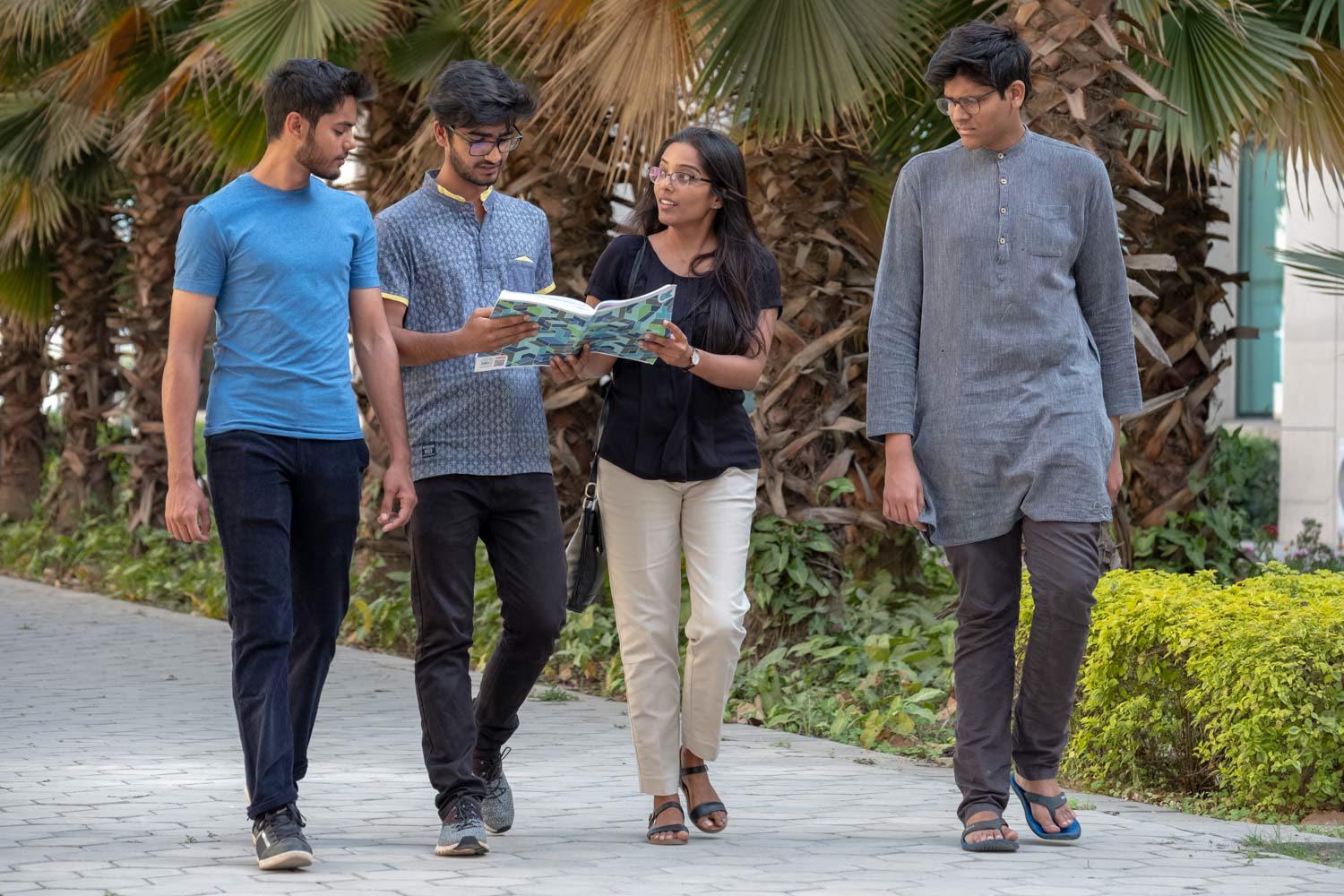
The university's School of Humanities and Social Sciences (SHSS) is dedicated to transformative research and teaching. In the true spirit of progressive education that is responsive to the challenges of 21st-century India, the departments and programs of the School encompass and integrate perspectives and practices from across the humanities, Art, Media and Performance, Design, Economics, English, History and Archaeology, International Relations and Governance
SHSS is committed to creating a learner-centric environment where students and faculty
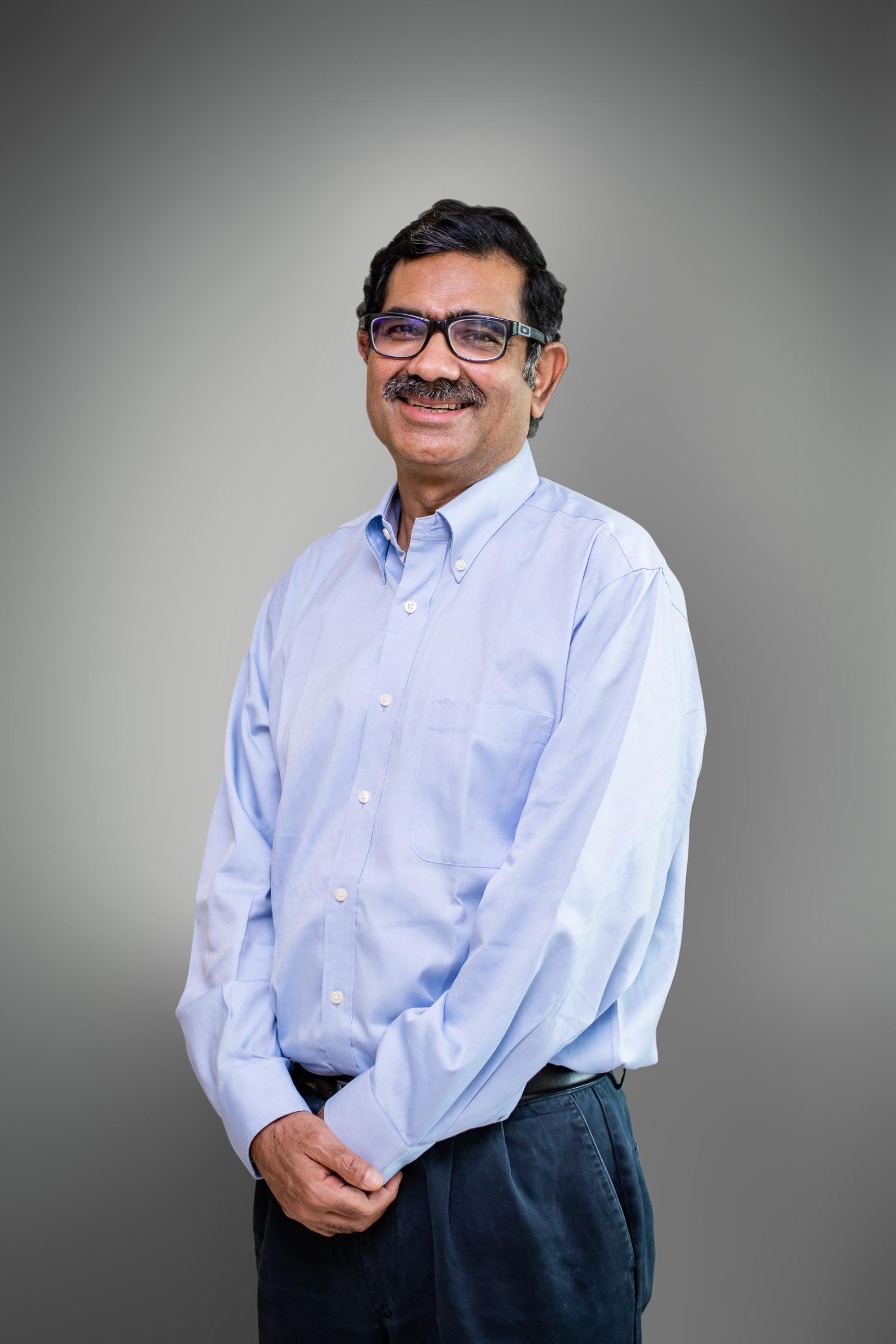
Professor, Department of Economics
Professor Rajat Kathuria joined the university as Dean of the School of Humanities and Social Sciences and Professor of Economics on April 1, 2021. He carries over 20 years of experience in teaching and more than 15 years of experience in economic policy, besides pursuing extensive research on various issues relating to regulation and competition policy. Professor Kathuria served as Director and Chief Executive at the Indian Council for Research on International Economic Relations (ICRIER) before joining the university. He previously taught undergraduate economics at the University of Maryland, USA, and spent over 12 years with the International Management Institute (IMI), New Delhi, teaching postgraduate students managerial economics and international trade. He has also previously worked with the World Bank in Washington, D.C., as a consultant and on research assignments for several international organisations, including the International Labour Organization (ILO), the United Nations Conference on Trade and Development (UNCTAD), LIRNEasia, the World Bank, and the Asian Development Bank (ADB).
Professor Kathuria’s work has been published in several journals of international repute, as well as in magazines and newspapers worldwide. He serves on multiple industry and government committees, like the Confederation of Indian Industry (CII), Committee on International Trade Policy and Exports, the Implementation for Intended Determined Contribution (Ministry of Environment, Forest Forestry, Climate Change, Government of India), and the Advisory Council of the State Bank of India (SBI). Professor Kathuria has an undergraduate degree in economics from St. Stephens College (University of Delhi), a Master's from Delhi School of Economics (University of Delhi) Delhi), Ph.D. from theUniversity of Maryland (College Park), USA.
The university has an innovative curriculum where students Major in a chosen field and can choose electives from a variety of other subjects. Students graduate with various Major-Minor combinations chosen from across the Schools.
The Core Common Curriculum (CCC) course offers students skills in essential practice and knowledge from eight categories. University Wide Electives (UWE) open new and different fields of knowledge and contribute to the Minor degree.
The School of Humanities and Social Sciences offers students a compulsory course on 'Academic Writing', which initiates a well-rounded curriculum that includes modalities of writing an academic paper, considering the demands of different disciplines within the School and their writing conventions. The course equips students with various writing techniques that enable them to navigate different written assignments through their undergraduate program. Students also learn to compose writing samples in the form of a statement of purpose, a personal essay, and a research statement, which is crucial to further academic pursuits at national and international universities and for industry placements. The course is a foundational bridge from the school-level curriculum to undergraduate and postgraduate studies.
The Centre for Himalayan Studies (CHS) is a multi-disciplinary research centre established within the School of Humanities and Social Sciences. Created in early 2023, the centre’s four main research themes are economy, borders and identities, environment and regional geopolitics of the wider Himalayan region – which includes the Hindu Kush and the Karakoram. The Himalayas are a large physical landscape and cannot be bracketed or pigeonholed only as a geographical entity. Such a reading tends to neglect the social, economic, and ecological dimensions integral to the region and interconnected with one another. Therefore, any research or study of the region needs to be holistic and be informed by this interconnected ecosystem. The centre’s work, thus, covers countries spread from Central Asia to Myanmar that collectively share ecosystems and cultures and several political and economic challenges. In the absence of a single national-level institution to explore a wide variety of disciplinary and sectoral approaches to the study of this region, the centre seeks to answer crucial questions across the spectrum of security, development, border communities and the environment.
The centre reflects Shiv Nadar University’s global outlook and ambitions, focusing on engaging researchers with niche or specialised interests in the wider Himalayas and identifying and creating a network of scholars in the field, both in India and externally. The centre also signifies a leadership role for the university, as it seeks to engage with academic and policy spaces. This leadership role is in keeping with the university’s identity and goals of promoting innovation, creativity and interdisciplinary engagement in Indian education.
The centre encourages students, scholars, practitioners, and members of the strategic community to contribute towards addressing issues of representation, knowledge creation, discourse, and policy interventions in the Himalayas. It aims to develop and utilise strong links – especially with the policy community and government agencies in a mutually-supporting exercise. The centre focuses on issues of contemporary relevance that will highlight issues related to the region and develop a policy or problem-solving approach. The centre’s output takes a variety of forms – commentaries, issue briefs, occasional papers, book reviews and more.
Name & Designation
Dr. Jabin Thomas Jacob
Director, Centre of Excellence for Himalayan Studies, Ph.D., Jawaharlal Nehru University, New Delhi
Prof. Siddiq Wahid
Distinguished Fellow
Ph.D., Harvard University, USA
Claude Arpi
Distinguished Fellow
Professor Kaveri Gill
Non-Resident Senior Fellow
Ph.D., University of Cambridge, United Kingdom
Dr. Anand Krishnan
Fellow, Ph.D., Jawaharlal Nehru University, New Delhi
Dr. Devendra Kumar
Associate Fellow, Ph.D., University of Hyderabad, Telangana
Chinese domestic politics, China in South Asia and the Indian Ocean region, Sino-Indian border areas, Indian and Chinese worldviews, and centre-province relations in China.
Medieval Central Eurasia and Tibetan Cultural Histories; Interaction between Central Eurasia and South Asia, Modern history of the region 1750s to 1950s, Small states in the context of large states, Global conflicts centred on ethno-federal (nations) and territorial states.
Himalaya, Tibet, China, Boundary dispute, Indo-French Relations
The political economy of the informal recycling and waste economy, the politics of development policy, the refugee predicament of statelessness and its multiple correlates, with specific reference to Tibetans, Nalanda Buddhist philosophy and practice in the Tibetan plateau and the Himalayan region.
Labour and Supply Chains in the Global South, Political Economy of China and India, State-Society Relations, Labour-Urban Interface, Social Policy
China and International Order, Political Legitimacy of the Communist Party of China (CPC), Territorial Sovereignty questions in China’s peripheries, Political economy with particular focus on western regions of China, Intellectuals and party ideology
Master of Fine Arts (M.F.A. degree program)
Art Minor
Communications Minor
Dance Minor
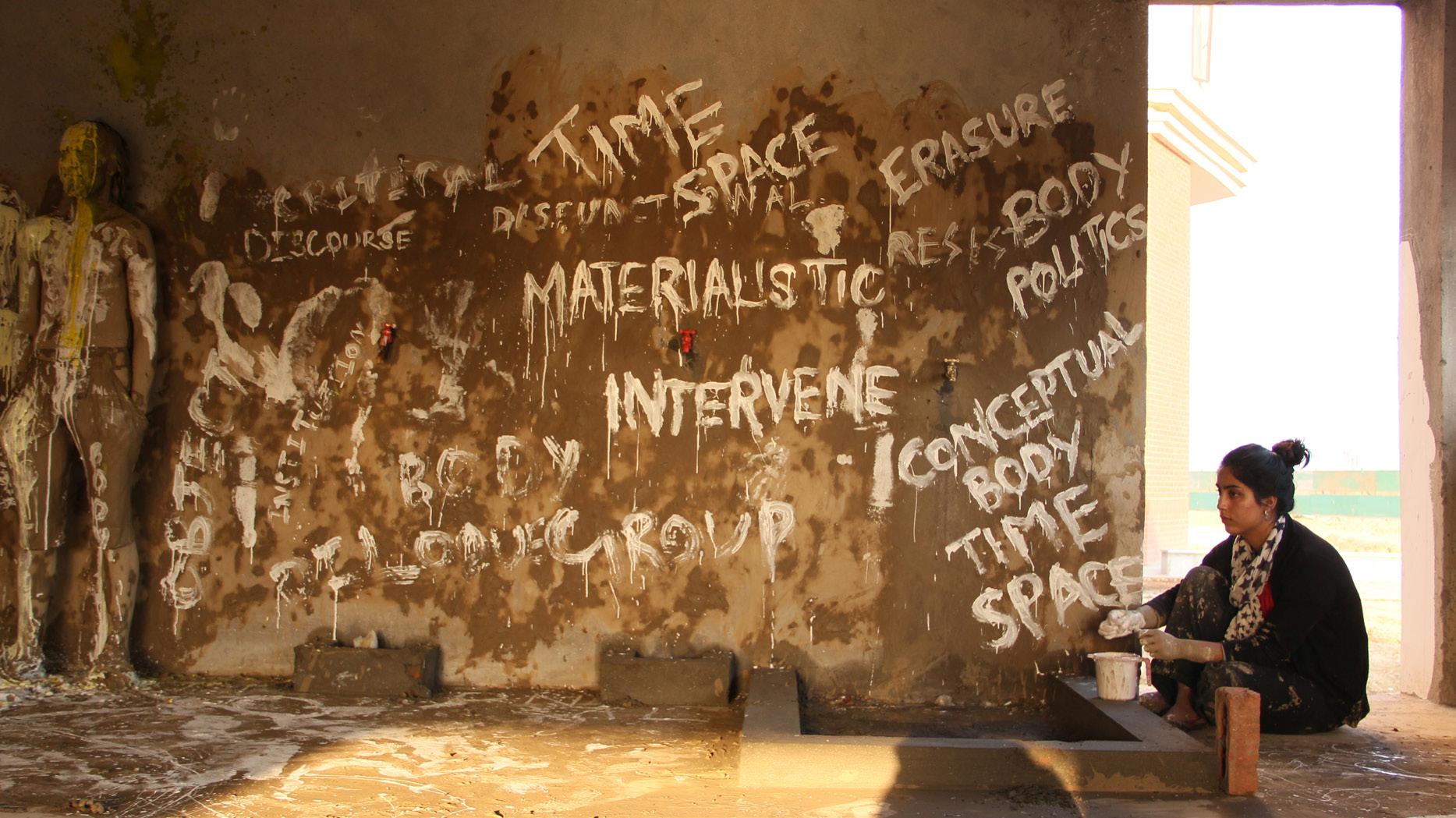
Approaches to Art: Themes and Theories, Art after World War II, Art After Independence, Art And Ecology, Cinema between the Wars, Cross-Media Project, Dance and National Identity, Dancer's Body, Film and The Moving Image, Introduction to Ergonomics Dance, Modernity, Modernism, Modernisation, Painting and Drawing, Sculpture and installation, The Photographic Image, and Writing Dance.
*This is not an exhaustive list. The courses are reviewed every semester based on the program's requirements and new electives may be added.
The Department of Art, Media and Performance attempts to nurture a rigorous and thoughtful praxis in foregrounding questions of art, technology, politics, identity, philosophy, history, society, material and culture. It offers a Master of Fine Arts (MFA), a full-time two-year (4 semesters) studio-based and research-entered program. The department offers its MFA students individual art studios, project spaces, cutting-edge production workshops, multi-media labs, and a dedicated library and visual resources facility. A unique feature of the program is that each student receives individual attention and works with a team of mentors selected from the faculty, visiting and guest artists, and advisors drawn from India's best practitioners and academics.
The Department of Art, Media and Performance is committed to the ideal of a holistic education and strives to make arts education central to the undergraduate curriculum at the university as well. To achieve this, the department offers University Wide Electives and Minor Programs in art, communication and dance open to students across the university. This provides a basic grounding on the context of the creative practice within India and the scope for a deeper engagement with the disciplines.
&
Professor Atul Bhalla
Professor (Head of Department)
M.F.A., School of Art, Northern Illinois University, USA
Dr. Aadya Kaktikar
Associate Professor
Ph.D., (Dance), Texas Woman's University, USA
M.A., Teaching (Dance), Royal Academy of Dance, University of Surrey, UK
Amrithasruthi Radhakrishnan
Assistant Professor, Ph.D. (Ongoing), Theatre and Performance Studies, School of Arts and Aesthetics, Jawaharlal Nehru University, New Delhi
M.A., Performance Studies, School of Culture and Creative Expressions, Ambedkar University, Delhi
Anupam Roy
Assistant Professor
M.A.,Visual Art, Ambedkar University, Delhi
M.F.A., De Montfort University, Leicester
Ashwin Ramanathan
Associate Professor
Diploma in Film Editing, Film and Television Institute, India
Diploma in Film and TV Production, Xavier Institute of Communications, India
Bahar Dutt
Associate Professor
M.A., Social Work, Delhi University, India
M.Sc., Conservation Biology, University of Kent, UK
Dr. Deepti Mulgund
Assistant Professor
Ph.D., School of Arts and Aesthetics, Jawaharlal Nehru University, India
Hemant Sreekumar
Assistant Professor
M.A., Digital Media, Hochschule Für Kunst, Germany
B.A., Art History & Aesthetics, M.S.U. Baroda, India
Dr. Iram Ghufran
Associate Professor
Ph.D., CREAM, University of Westminster, UK
M.A.,Mass Communication, AJK MCRC Jamia Millia Islamia University, India
Monica Juneja
Distinguished Professor
M.A. and M. Phil, University of Delhi, India
Doctorate, École des Hautes Études en Sciences Sociales, Paris, France
Anushka Rajendran
Visiting Faculty
M.Phil., Visual Studies, Jawaharlal Nehru University, India
Sonam Chaturvedi
Visiting Faculty
M.F.A., Shiv Nadar University, Delhi NCR, India
Vasudha Thozhur
Visiting Faculty
Diploma (Painting), College of Arts and Crafts, Chennai, India
Diploma (Painting), School of Art and Design, Croydon, UK
Physical, historical, and political significance of water in the urban environment through artworks that incorporate sculpture, painting, installation, video, photography, and performance.
Dance pedagogy, critical dance practice, curriculum and assessment design
Dance studies, performance studies, dance and nation-making, performance historiography, performance process, practice-led research, institutional histories, festival studies, culture policy, performance curation, arts education, dance pedagogy
Community-based art practices; issues concerning the relationship between land and labour; discourses of representational impossibility; of the body as a witness; and of the representation of violence in contemporary times.
Motion picture production and pedagogy; emerging technologies in filmmaking; history of film; world cinema; film editing.
Climate change and biodiversity; climate justice; environment journalism; community-based conservation; storytelling for conservation.
Nineteenth and early-twentieth-century art in South Asia and includes areas such as; art publics and citizenship in colonial India; drawing in the nineteenth century; picnics and the consumption of 'nature' and 'culture'; museum displays and the formation of knowledge, and markets.
History and philosophy of technology; art history; interactive art; experiential design; aesthetics of sound;
Artistic research; practice-based research; film and new media; documentary cinema; expanded cinema; experimental film; science fiction
Transculturation and art history; practices of visual representation in early modern South Asian court cultures; architectural history of South Asia, gender and political iconography in modern France; art history in the age of the Anthropocene.
Art history; socially engaged art practice; contemporary art
Global contemporary art; digital media arts; art pedagogy; artistic research; sculpture and installation
Visual arts - including painting and drawing, video and printing/printmaking; inter-disciplinary creative practices; art pedagogy; writing as an artistic and communicative process; excavating new languages in art.
Bachelor of Science (Research) in Economics
Bachelor of Science (Research) in Economics and Finance
Master of Science in Economics
Ph.D. in Economics
Representative Courses*
Core courses:
Principles of Microeconomics, Intermediate Macroeconomics, Game Theory, International Economics, Probability and Statistics, Econometrics
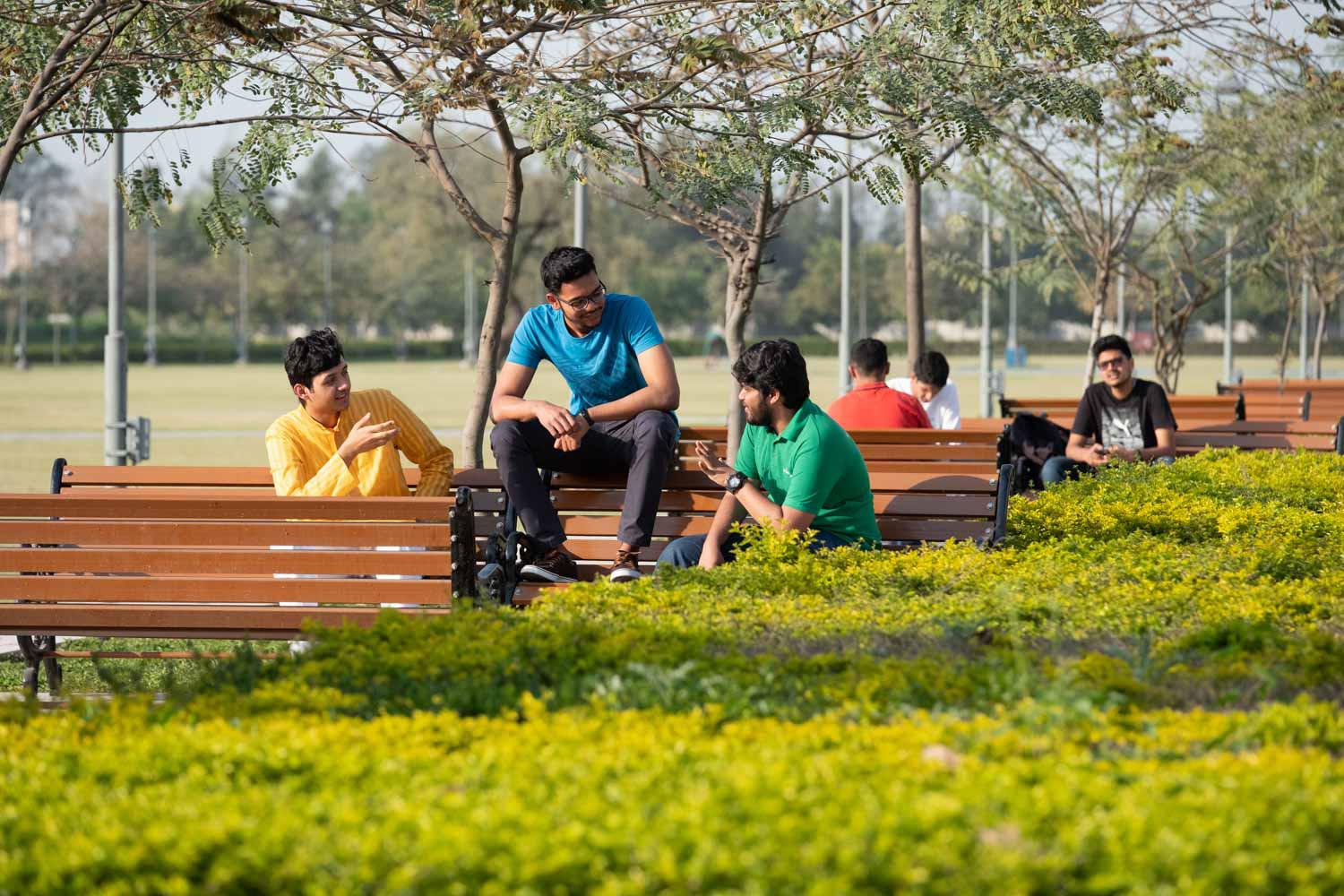
Elective courses: Labour Economics, Money and Banking, International Finance, Public Economics, Industrial Organisation, Advanced Macroeconomics, Advanced Econometrics
*This is not an exhaustive list. The courses are reviewed every semester based on the program's requirements and new electives may be added.
Much of the challenge and excitement in pursuing an academic program in modern economics comes from the fact that it demands proficiency in diverse skills. Good training in economics combines mathematical sophistication, computational skills and an appreciation of complex societal functioning. The rigorous and innovative course structure is designed to provide students with the requisite breadth and depth when mastering modern economics. Our faculty members are active researchers trained at some of the best research universities in the world.
Their pedagogical approach is to introduce students to the general foundations that underlie economics and the skills required to understand and tackle specific economic questions. Our courses include projects, and our students work on an undergraduate thesis. Further, the students take courses and interact with faculty across various disciplines like Mathematics, Management, Computer Science, International Relations, and Sociology, amongst others, thus, providing our students with a truly interdisciplinary perspective.
Dr. Rajat Kathuria
Dean, SHSS, Professor, Department of Economics, Ph.D., University of Maryland (College Park), USA
Dr. Mandar Oak
Professor and Head of Department, Ph.D., Cornell University
Dr. Ram Ranjan
Professor, Ph.D., Penn State University, USA
Dr. Partha Chatterjee
Professor, Ph.D., University of Minnesota, USA
Dr. Darryl Reed
Distinguished Professor, Ph.D., degrees in Ethics (USC 1997) and Political Economy (USC 1995)
Dr. Shabana Mitra
Assistant Professor, Ph.D., Vanderbilt University
Dr. Punarjit Roychowdhury
Assistant Professor, Ph.D., Southern Methodist University, USA
Dr. Ashokankur Datta
Associate Professor, Ph.D., Indian Statistical Institute, Delhi, India
Dr. Gitanjali Sen
Associate Professor, Ph.D., University of Missouri-Columbia, USA
Dr. Kurt James Horner
Assistant Professor, Ph.D., University of California, Irvine, USA
Dr. Nirvana Mitra
Assistant Professor, Ph.D., Stony Brook University, New York, USA
Dr. Suchismita Tarafdar
Associate Professor, Ph.D., Arizona State University, USA
Dr. Abhimanyu Khan
Associate Professor, Ph.D., Maastricht University, Netherlands
Dr. Anup Pramanik
Associate Professor, Ph.D., Indian Statistical Institute, Delhi, India
Dr. Arka Roy Chaudhuri
Assistant Professor, Ph.D., University of British Columbia, Vancouver, Canada
Dr. Shampa Bhattacharjee
Assistant Professor, Ph.D., University of British Columbia, Canada
Dr. Shraman Banerjee
Assistant Professor, Ph.D., Southern Methodist University, Texas
Dr. Trishita Ray Burman
Assistant Professor, Ph.D., Indian Statistical Institute, Kolkata, India
Dr. Sandro Brusco
Visiting Professor, Ph.D., Stanford University
Dr. Amrita Ghosh Dastidar
Guest Faculty, Ph.D., Utah State University - Jon M. Huntsman School of Business
Dr. Aditi Singh
Assistant Professor, Ph.D., Brown University- Providence, USA
Competition, Regulation, and Public Policy
Public economics, Political Economy, Development Economics, Microeconomic Theory
Natural Resource Economics, Environmental Economics
Macroeconomics, International Economics, Emerging Economies
Development, Business Ethics, Cooperatives, Social Enterprises and Fair Trade
Development Economics, Political Economy, Applied Econometrics
Applied Micro-econometrics, Development Economics, Labor Economics, Economics of Gender, Behavioral Economics
Environmental Economics, Development Economics
Development Economics, Health Economics
Macroeconomics Search Models, Physical Capital Markets, Industrial Organization, Political Economy, Macroeconomics, Labor Economics
International Macroeconomics
Macroeconomics, Mathematical Economics
Microeconomics and Game Theory
Social Choice, Game Theory, Microeconomics
Social Choice, Mechanism Design, Game Theory, Microeconomics
Development Economics, Labor Economics
Microeconomic Theory, Experimental Economics
Macroeconomics, Environmental Economics
Mechanism Design, Corporate Finance, Political Economy
International Finance, Econometrics, Public Finance
Macroeconomics
Bachelor of Design (B.Des.)
Integrated B.Des.- M.Des. Degree
Design Minor
Representative Courses*
Core courses:
Core courses: Society, Culture and Design, Human Behaviour, Psychology, and Creativity
Human-Centered Design Methods, Electronics for Designers, User Experience Design, Semiotics and Communication Theory
Elective courses:
Interaction design, interface design, Digital modelling for AR/VR, Visual narrative Co-design for complexity
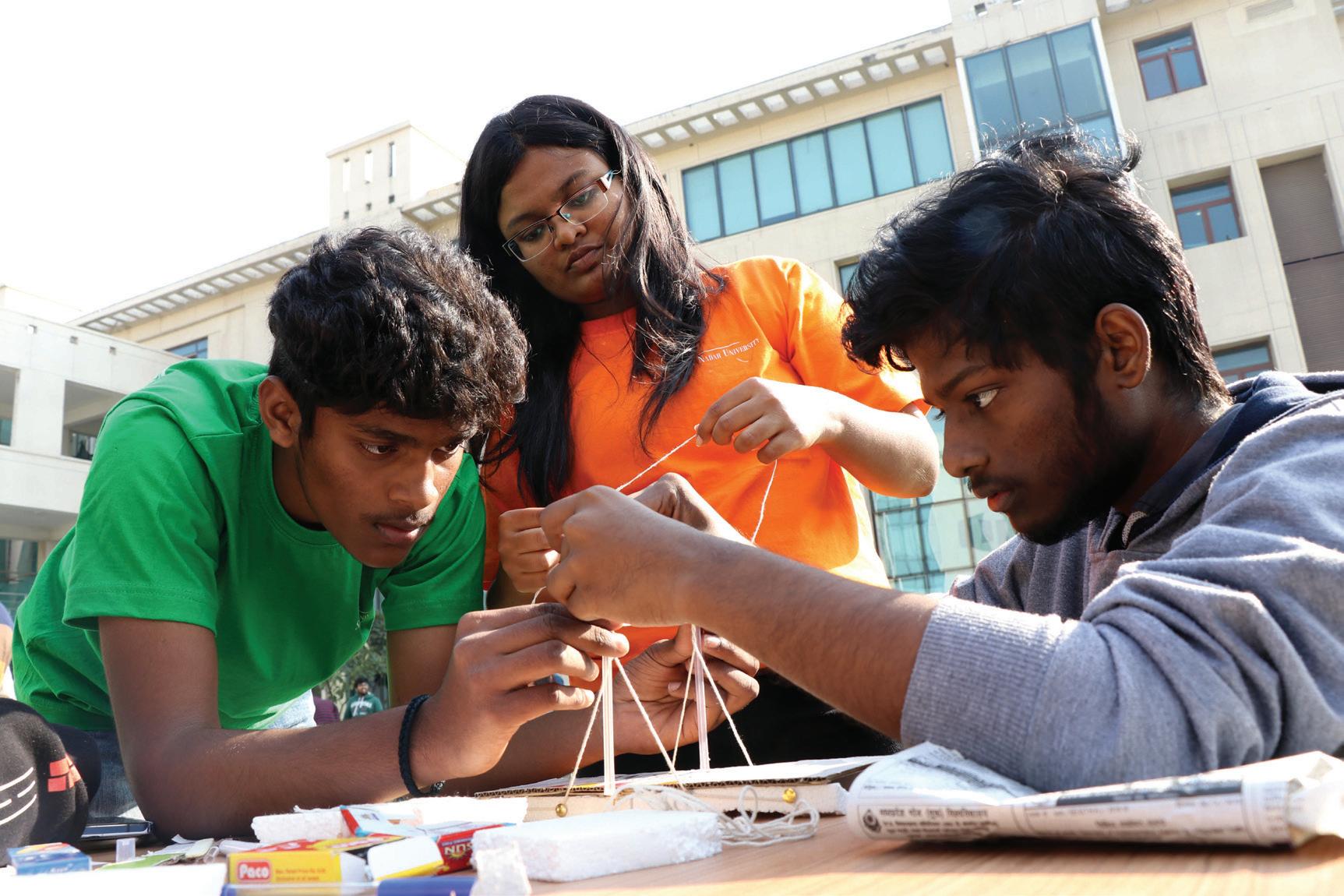
Globally, design has evolved as a serious, independent discipline in practice and academics. The Department of Design was established in 2017 to nurture creative minds into outstanding design leaders of the 21st Century. It aspires to become a centre of excellence in design education, research, and practice through a future-forward, human-centred, research-driven, practice-oriented approach. The department envisages that if one wants to be contemporary and relevant in design today and in the future, one has to keep pace with technological changes. Future design leaders should be creative thinkers, problem identifiers and solvers, and aesthetically sensitive connoisseurs who can responsibly simplify complexity and plan for the future.
The Bachelor of Design offered by the department is a four-year, future-oriented, trans-disciplinary program that uniquely curates knowledge and skills from Social Sciences, Arts, Engineering, and Management into Design. It was conceived after a year-long extensive and intensive consultation with prominent design experts and visionaries from academia and industry. It intends to equip students with core competencies for the 21st century and provides a choice-based streaming system, allowing students to specialise in the following domains:
· Experience Design (UI-UX)
*This is not an exhaustive list. The courses are reviewed every semester based on the program's requirements and new electives may be added.
· Visual Communication Design
· Product-System Design
The program also offers students the option of pursuing a 5-year (4+1) Integrated B. Des., M. Des. Degree.
Name & Designation Research Interests
Dr. Pradeep Yammiyavar
Distinguished Professor and Advisor, Ph.D., Indian Institute of Science Bangalore, India
Dr. Prakash Kumar
Associate Professor,
Ph.D., Indian Institute of Technology Guwahati, India
Snigdha Banerjee
Assistant Professor, M.Des., Indian Institute of Technology Bombay, India
Dr. Subhajit Chandra
Assistant Professor, Ph.D., Indian Institute of Technology Guwahati, India
Dr. Vikash Kumar
Assistant Professor, Ph.D., Indian Institute of Technology Guwahati, India
Professor Singanapalli Balaram
Distinguished Visiting Professor
Retd. Senior Faculty, NID Ahmedabad
Professor D. Udaya Kumar
Adjunct Professor
Ph.D., IDC Bombay
Usability; HCI, Augmented Reality, Virtual reality, Health, Social Systems Computing; E- Governance; E-Commerce; E- Medicine. Apps, Software. Design Semantics, Aesthetics, Culture: Products, Graphics, Visual Communication
Design for special needs, Low-cost innovations, Design for kids’ learning, Design for industry 4.0, Design for rural sector (agriculture, food processing, cottage industry, etc.), Design for sustainable future.
Traditional visual art and aesthetics, Intersection of storytelling with various mediums, i.e., performing art, animation, illustration/graphics, filmmaking, photography, prose and poetry, History of moving images, Persian aesthetics.
Visual design research, Reading psychology, Behavioral research in visual design, Non-Latin typography and type design research, Data-driven design research, Virtual reality.
Product service system design for sustainability, Innovation in sustainable design, Design pedagogy, Social design, Design management, UI/UX Research
Universal Design, Design Thinking, Design Ethics, Storytelling Techniques
Visual Communication Design, Design Leadership, Design Education, Typography
Bachelor of Arts (Research) in English
Master of Arts in English
Ph.D. in English
Language Game of Literature, Drama: Tropes and Adaptations, Shakespeare and his Contemporaries, Landmarks in the Novel Form, The Fundamentals of Creative Writing, Contemporary Forms of Fiction, Fantasy and Science Fiction, Crafting Short Fiction, Introduction to Translation Studies, South Asian Literature, and Unlocking the Literary through Feminist Theory, Linguistic Approaches to Literature
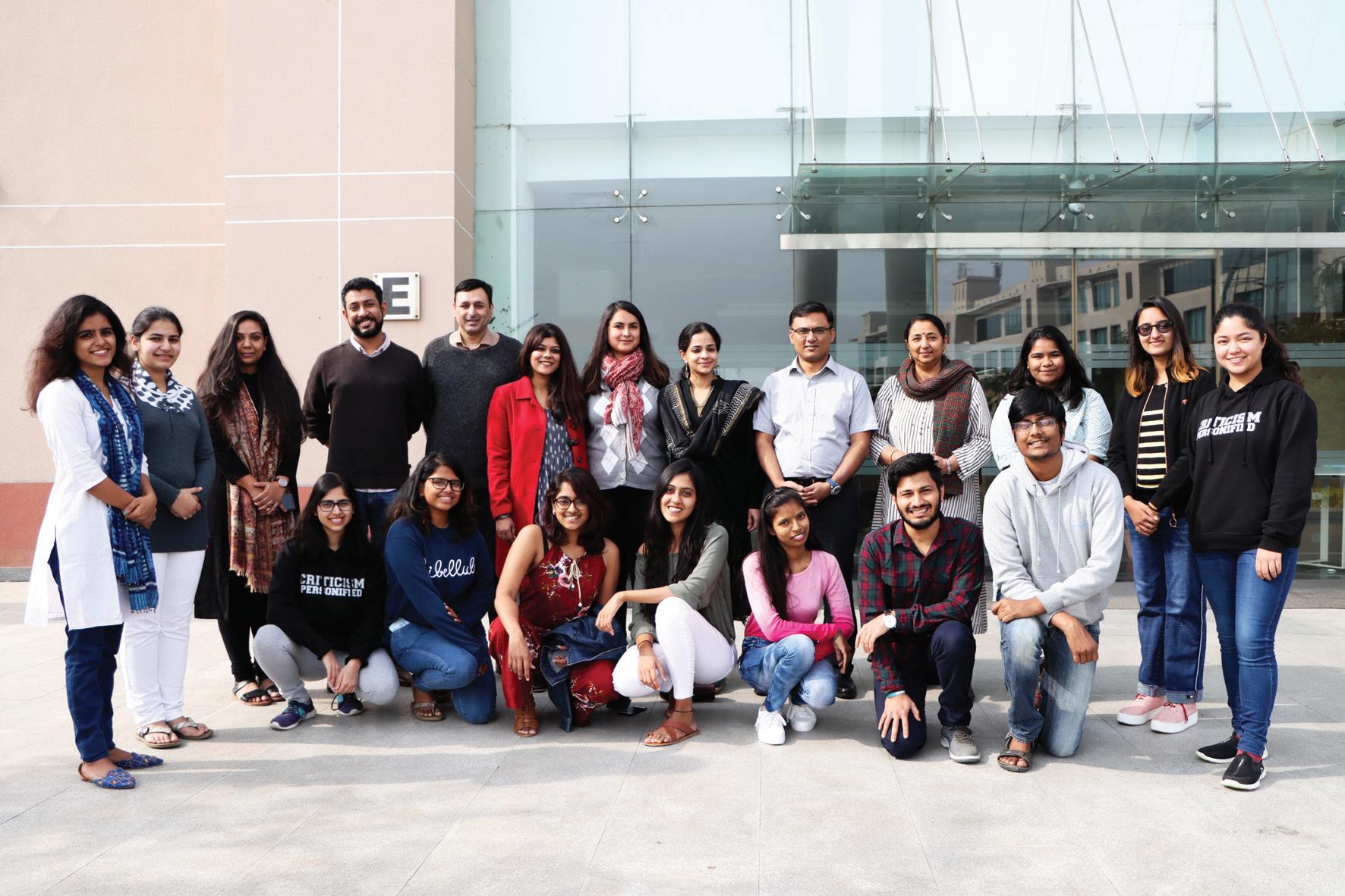
are committed to methodological innovation with creative and critical rigour in our research and teaching. The English Department is home to highly qualified faculty and a vibrant and deeply engaged community of undergraduate and graduate students. As an academic space with a reputation for encouraging research, the department has attracted academicians from institutions such as the University of Delhi, Jawaharlal Nehru University, University of Oxford, University of East Anglia, Trinity College, Dublin, Binghamton University, EFLU Hyderabad, IIT-Bombay, Monash University and the School of Oriental and African Studies (SOAS). The undergraduate and postgraduate programs are carefully curated to represent a wide range of literature, from traditional figures of the English literary canon, such as Shakespeare and Virginia Woolf, to giants of world literature, such as Gabriel Garcia Marquez.
*This is not an exhaustive list. The courses are reviewed every semester based on the program's requirements and new electives may be added.
The department specialises in nineteenth and twentieth-century literature originating in Europe and India. Beyond these, the curricula introduce students to contemporary interdisciplinary programs such as gender studies, cultural studies, and digital humanities. The programs take students through several pathways of creative and critical literary analysis that include: fictional traditions stretching from the novel to graphic novels and video games, the literatures of South Asia informed by theories of translation, literary and cultural theory, world poetry, creative writing, and the development of theatre from classical to contemporary times. The curricula are designed to give students the intellectual training, knowledge base, and communication skills necessary for various professions: civil services, publishing, journalism, advertising, content writing and analysis, and law.
Dr. Sambudha Sen
Professor and Interim Head of Department, Ph.D., University of Delhi, India
Dr. Vikram Kapur
Professor and Head of Department (on sabbatical), Ph.D., University of East Anglia, UK
Dr. Tulika Chandra
Professor, Ph.D., Jawaharlal Nehru University, India
Dr. Gautama Polanki
Associate Professor, Ph.D., English and Foreign Languages University, India
Dr. Gatha Sharma
Associate Professor, Ph.D., M.D.S. University, India
Dr. Aakriti Mandhwani
Assistant Professor, Ph.D., SOAS, University of London,UK
Dr. Anirban Ghosh
Director, Center of Writing, Assistant Professor Ph.D., Ludwigs Maximilian Universitaet, Munich, Germany
Dr. Diviani Chaudhuri
Assistant Professor, Ph.D., Binghamton University, the State University of New York at Binghamton, USA
Dr. Vinayak Das Gupta
Assistant Professor, Ph.D., Trinity College Dublin, Ireland
Nineteenth-century Urban print culture; Language of radicalism in nineteenth-century Britain; Body, disease and medicine in Victorian culture; nineteenth-century novel in England and Europe; Incipient modernities; Relationship between the literary and the visual; Novel theory; Literary and cultural theory, Early novel in India; Contemporary fiction especially, Marquez and Saramago.
Creative Writing, Anti-Sikh riots of 1984, Realist and Speculative Literature.
Dr. Chinmay Sharma
Assistant Professor, Ph.D., SOAS, University of London, UK
Dr. Sreejata Paul
Assistant Professor, Dual-badged Ph.D., IIT Bombay and Monash University
Translation studies, Regionalism and narratives in folklore, Folkloristics, Folklore and identity, Development of language, English language teaching.
Reader-response theory including cognitive poetics, Narrative theory, Postmodernist fiction.
Socio-linguistics, Computational linguistics, Natural language processing, Translation studies.
Book and magazine history, popular literature and culture, Hindi literature, middle-class consumption.
Academic writing and critical thinking, Cultural history of nineteenth-century South Asia, and history of archives and archiving.
Built environment, Cultural heritage and display practices, World literature, Anthropocene fiction, Deep time, Geology, and archaeology in literature.
Digital humanities, Digital cultures, Digital curation, History of photography in South Asia, Linked data and Semantic Web Technologies, Text analysis, Data visualisation, Participatory engagement in academic research
Mahabharata, Languages and cultures of South Asia, Comparative literature, Cultural studies, Postcolonial studies, Film and television studies, English literature, Hindi literature, Modern theatre, Print studies, International modernisms, Public culture, World literature, and Dalit literature
Islam in South Asia, Gender studies, Queer studies, Transnational literary networks, Intellectual history
Bachelor of Arts (Research)
Ph.D. in History/Archaeology
Core courses: Does History Matter?, Introduction to Archaeology, Bronze Age Civilizations, Ancient Indian Social History, Early Medieval South Asia, Introducing the Early Modern, Engendering History, Establishment of British Power in India, Social Change in South Asia, and History of Art and Architecture in South Asia.
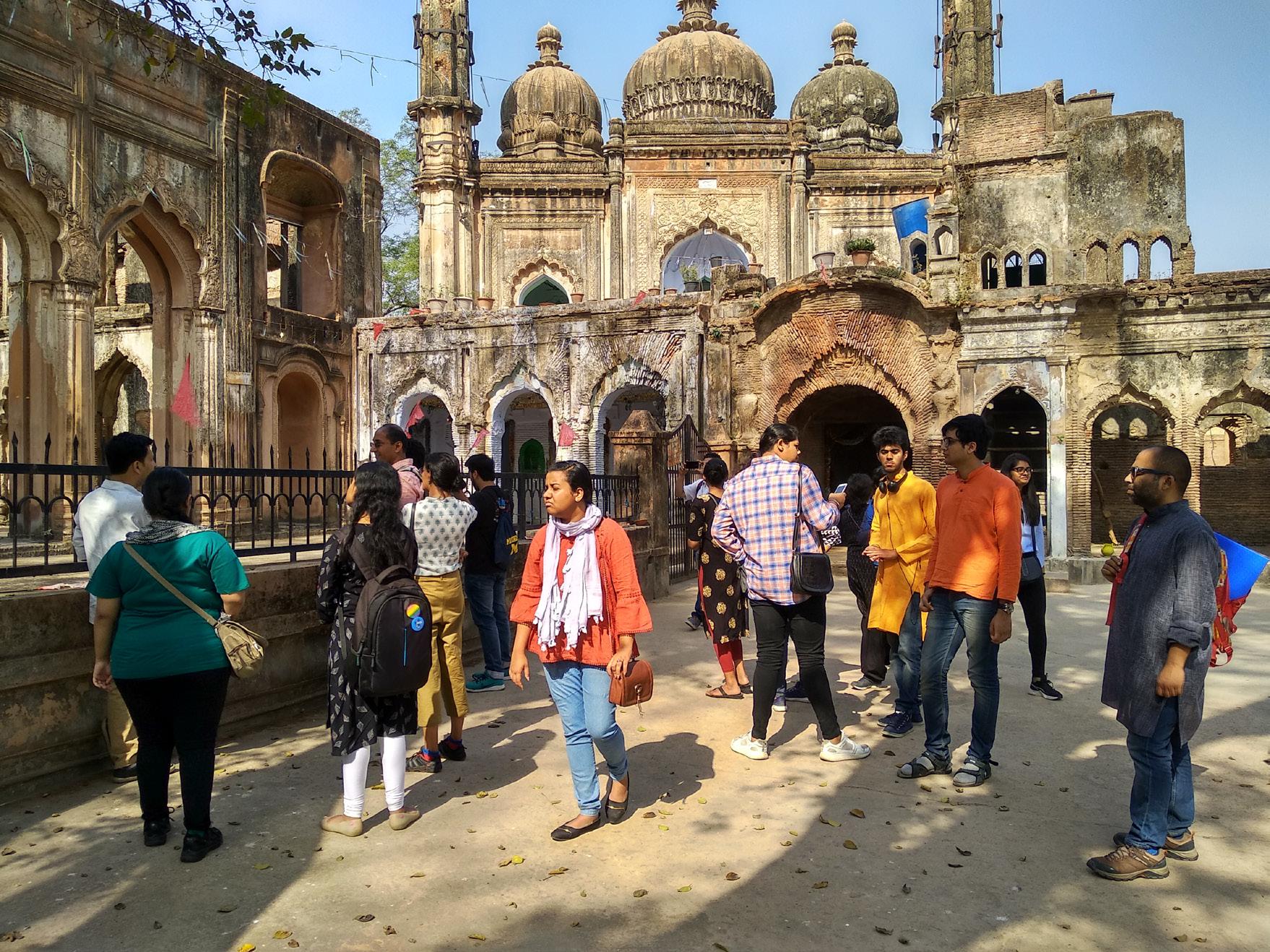
Elective Courses: Historicising Caste, Fasting and Feasting: Global Histories of Food, Orientalism, Culture and Imperialism, Economic History of India, Cross-cultural Perspectives on Education and Youth, Uneasy lies the Head: Kingship and Sovereignty in Early Modern South Asia among others.
Archaeology Minor Courses: : Field Methods in Archaeology, Archaeology of South Asia, Curating Cultures: Collections, Museums, Practices, Archaeologies of the Contemporary World, Temples, Tombs and Warrior: A Comparative Archaeology of India and China, Archaeology of Cities.
*This is not an exhaustive list. The courses are reviewed every semester based on the program's requirements and new electives may be added.
fields. The Department’s faculty is invested in expanding the frontiers of scholarship in history and archaeology and regularly undertakes independent and collaborative research projects, both locally and internationally. Our independent projects enable us to speak across the social sciences, create bridges between the sciences and humanities, and proactively communicate our work to larger audiences.
In the classroom, we aim to make studying the past more enjoyable through creative engagement with the sources. Of particular note is the Archaeology Lab, which not only contains an exciting collection of artefacts but is also a space to introduce students to essential field methods and offer resources for intensive study. The laboratory houses archaeological materials such as stone tools, pottery sherds, shells, and a small but growing geological collection of rocks. Students and faculty use the lab to perform hands-on investigations of these materials. The School continues to invest in industry-standard curatorial equipment to help conserve artefacts and exhibit them periodically.
The Department has a vibrant culture of research. Scholars from both within the country and abroad speak at our seminar series and interact with students and colleagues. The department's graduate students present their work before an academic community at research workshops and colloquia. We encourage student participation in seminars, conferences, exhibitions, and film screenings. A history major can choose from a range of core and elective courses. These are taught in such a way as to enable the development of skills in writing, research, analysis, and quantitative reasoning that are essential for a comprehensive liberal arts education.
Dr. Anubhuti Maurya
Associate Professor and Head of Department, Ph.D., Jawaharlal Nehru University, India
Dr. Ajay Dandekar
Professor, Ph.D., Centre for Historical Studies, Jawaharlal Nehru University, India
Dr. Divya Kannan
Assistant Professor, Ph.D., Jawaharlal Nehru University, India
Dr. Hemanth Kadambi
Associate Professor,
Ph.D., University of Michigan, Ann Arbor, USA
Dr. Iman Mitra
Assistant Professor, Ph.D., Jadavpur University, India
Dr. Meera Visvanathan
Associate Professor, Ph.D., Jawaharlal Nehru University, India
Dr. Sudeshna Guha
Professor, Ph.D., Deccan College, University of Poona, India
Dr. Kaustubh Mani Sengupta
Assistant Professor, Ph.D., Jawaharlal Nehru University, India
Dr. Megha Sharma
Assistant Professor, Ph.D., Jawaharlal Nehru University, India
Medieval and early modern South Asia, Mughal empire, Regions in Indian history, Early modern states, Narrative and literary traditions, Persianate traditions in South Asia, Urban History, Archives and archival practices
Pastoral nomadism, Tribes, Regions’ governance, Central India, Agrarian crisis, Denotified tribes
Nineteenth and 20th South Asian History (particularly India), History of education, Christian missions, Childhood and youth studies, Social movements, Public and oral histories
Archaeology and history of the First Millennium CE in Lower Deccan and South India, and Comparative understandings of histories within an Asia-wide frame
History of the economic discipline; Economic history and political economy of South Asia; Urbanisation, Migration practices and the Informal economy in South Asia; State and non-state networks of dissemination of economic knowledge, especially in colonial and postcolonial contexts, Relation between economic rationalities and governmental reason
Epigraphy, Writing systems, Translation, Ancient Indian social history
Histories of archaeology, Historiography of pre-colonial India, Visual histories, Museum and heritage studies
Urban History of South Asia, Early Colonial State in India, History of Infrastructure and Space, History in the Vernacular
Modern History, Labour Laws and Legal history in post colonial India, informal economies and labour jurisprudence
Bachelor of Arts (Research) in Sociology
Ph.D. in Sociology
Core courses: Sociological Theory I; Anthropological Theory; Sociological Theory II; Market, Exchange and Obligation; Religion and Society; State and Citizenship; Kinship and Relatedness; Field, Archive, Ethnography.
Electives: Life of Law; Mind, Self and Mental Health; From Feminism to Queer Studies; Rap Music in Multiple Contexts; Visuality, Power, Optics; Anthropology of Climate Change; Sociology of Science; The Social Life of Nomads; Health, Disease, Illness; Hierarchy, Difference, Inequality.
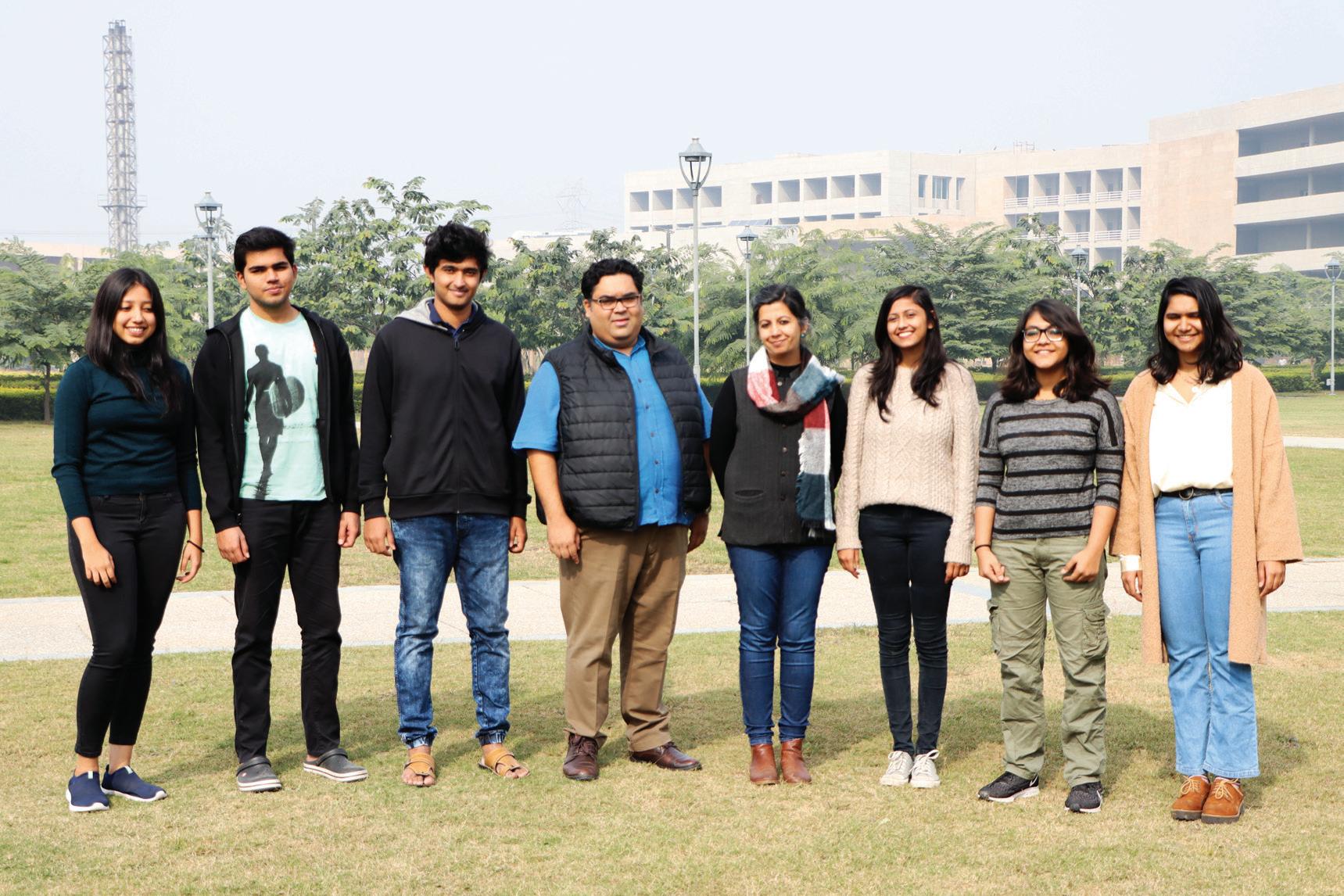
everyday contexts, we train our students to critically engage with their environment with a solid sociological grounding and interdisciplinary sensitivity. Focused on emerging planetary concerns such as health, security, poverty, sustainability, technology, law and governance, our research and teaching programs are well grounded in classical and contemporary approaches to themes like family and kinship, religion and ritual, difference and hierarchy, rural and urban, art and aesthetics, sound and sensorium.
*This is not an exhaustive list. The courses are reviewed every semester based on the program's requirements and new electives may be added.
The Department of Sociology at Shiv Nadar University sustains and enables research not just within the Indian sub-continent but also encourages connections and conversations – analytical, ethnographic and archival – with locations around the region and across the globe. Our faculty actively research and write on issues that relate to and reflect global disciplinary trends such as science and technology studies, sonic and visual cultures, religion and identity, mind and body, climate change and social ecologies, law and governance, and life and bio philosophies. Our engagement in ongoing discussions and debates speaks of our emerging leadership in the discipline.
Name & Designation
Dr. Yasmeen Arif
Professor and Head of Department, Ph.D., Delhi School of Economics, University of Delhi, India
Dr. Urmila Bhirdikar
Associate Professor, Ph.D., Delhi School of Economics, University of Delhi, India
Dr. Ravi Nandan Singh
Associate Professor, Ph.D., (Sociology), Jawaharlal Nehru University, Delhi, India
Dr. Devika Bordia
Associate Professor, Ph.D., Yale University, USA
Dr. Anita Sharma
Assistant Professor, Ph.D., Delhi School of Economics, University of Delhi, India
Dr. Subhashim Goswami
Assistant Professor, Ph.D., Delhi School of Economics, University of Delhi, India
Dr. Tuhina Ganguly
Assistant Professor, Ph.D., University of Canterbury, New Zealand
Dr. Vasundhara Bhojvaid
Assistant Professor, Ph.D., Delhi School of Economics, University of Delhi, India
Dr. P.C. Saidalavi
Assistant Professor, Ph.D., (Anthropology), Australian, National University, Canberra, Australia
Research Interests
Politics of life and biophilosophies, Social theory and epistemology in social anthropology/sociology, Urban and city studies, International law and humanitarianism, Science and technology studies, Digital, Visual and material environments, Art and Aesthetics
South Asia themes gender-sexuality, privilege and dispossession, respectability and self respect, translation and sound through English, Hindi, Marathi, Kannada and Gujarati print and audio-visual materials. Trained in khayal singing in the Hindustani music tradition.
Sociology of death and the dead, Shifting funerary forms, Grief and mourning, cremation, Medical sociology, Forms of religious and spiritual lives, Morbid humour, Literary sociology, Philosophy of names, kinship
The politics of legal pluralism, Citizenship, and marginality; Repertoires of public engagement, ethics, and relatedness; Military cultures, Religion, and practices of protest
Nomadic Imaginaries and the politics of nomadism and pastoralism, multispecies relatedness, the commons, political anthropology, social ecology and social theory; Jammu and Kashmir, Bakkarwals, Gujjars and the Himalayas
Ethnographic practice and method; Research/Art inflection, Theatre for toddlers, Education and pedagogy, Masculinity studies, Material culture.
Contemporary religiosities, Anthropology of the body, Anthropology of mind, Mental health, Cosmopolitics.
Sociology of science with emphasis on environment, Climate change and the anthropology of air pollution.
Anthropology of values, ideas of hierarchy, Contemporary religiosity, Mystical traditions, Anthropology of Islam, labour and trade unionism, Social change and economic prosperity.
Bachelor of Arts (Research) in International Relations
Minor in International Relations
Ph.D. in International Relations and Governance Studies
Introduction to International Relations; Global history and international relations; India in world affairs; Theorising international relations; global political thought; International organisations and global governance; International law and world politics; China in world affairs; Global Political Economy; Knowing and governing ecosystems and economies; International security; Gender in international relations; Cities of the Global South; China in global politics; Islam and Global politics.
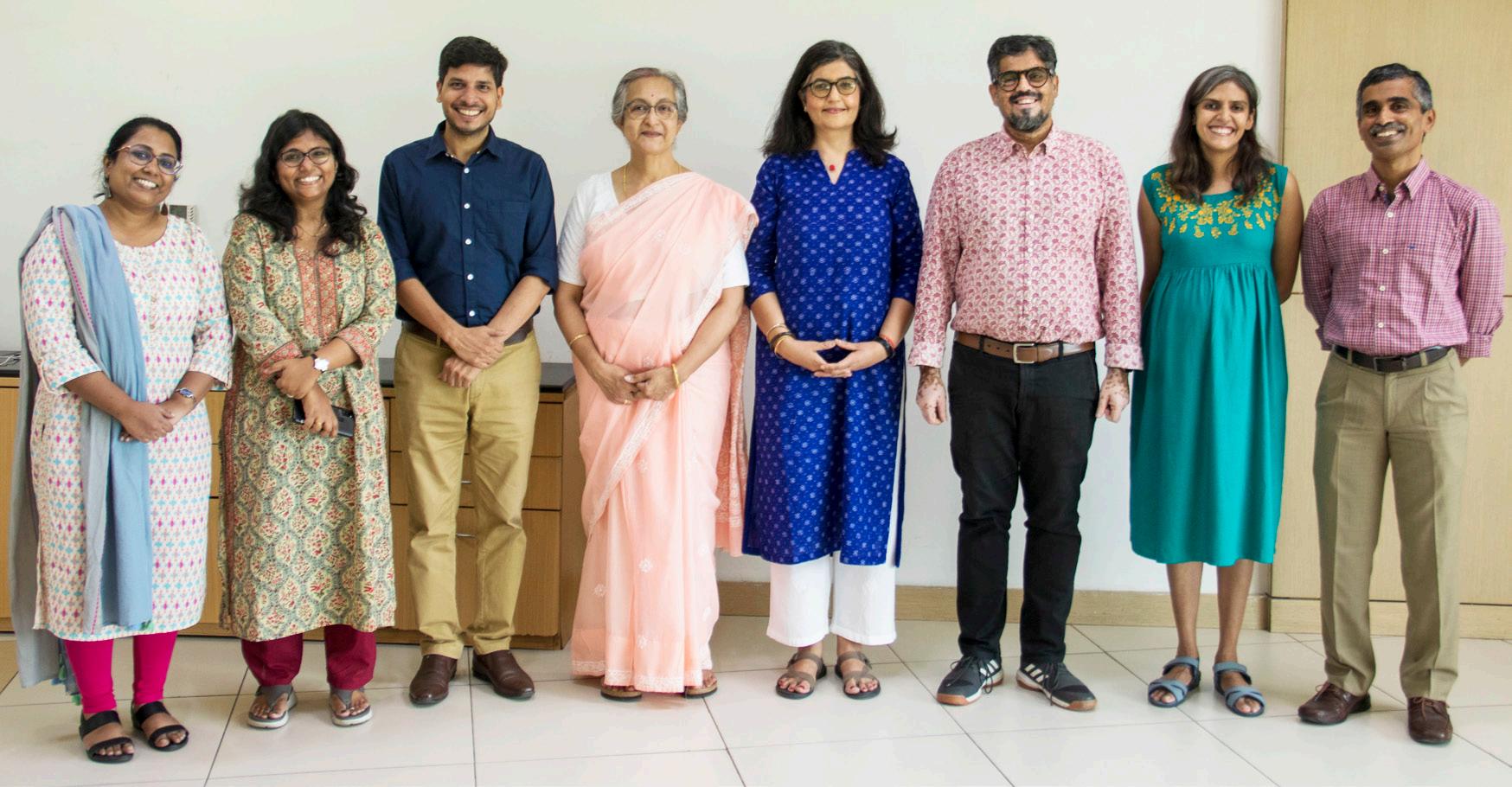
The Department of International Relations and Governance Studies offers a cutting-edge undergraduate program that gives our students well-rounded exposure to international relations. It lays emphasis on understanding international politics in terms of development, security and the environment, even as it covers classical areas such as geopolitics and foreign policy.
*This is not an exhaustive list. The courses are reviewed every semester based on the program's requirements and new electives may be added.
Students learn about global collective action problems such as climate change, intellectual property regimes, cyber security governance, inequality and social policy, and global refugee politics through our courses. Our courses span a curiosity about global political thought, international organisations and international law with a critical appreciation of the workings of gender, race, and class. Given contemporary Asia’s rising prominence in international affairs, we offer courses on China and India in world politics. We also facilitate language training in Mandarin. The Department’s faculty members are leading scholars in their fields. Their pedagogic style combines their research expertise with classroom teaching, a distinguishing feature of our education. The Departmental Society - Beyond Borders – a platform to ideate, create and express, is a student-led initiative to bridge the classroom and the real world.
Name & Designation
Dr. Atul Mishra
Associate Professor and Head of the Department, Ph.D., Jawaharlal Nehru University, New Delhi, India
Dr. Siddharth Mallavarapu
Professor, Ph.D., Jawaharlal Nehru University, New Delhi, India
Dr. Rajeswari S Raina Professor, Ph.D., Kerala University, India
Dr. Jabin Thomas Jacob
Associate Professor and Director Centre of Excellence for Himalayan Studies, Ph.D., Jawaharlal Nehru University, New Delhi, India
Medha
Assistant Professor, Ph.D. (Awaited), Christian Albrecht Universität zu Kiel and GIGA German Institute of Global and Area Studies, Germany
Dr. Sruthi Muraleedharan
Assistant Professor, Ph.D., SOAS, University of London, UK
Dr. Priyanka Pandit
Assistant Professor, Ph.D., Jawaharlal Nehru University, New Delhi, India
Dr. Kapil Patil
Assistant Professor, Postdoctoral Fellow, Friedrich-Alexander-Universität
Erlangen-Nürnberg, Ph.D., Jawaharlal Nehru University, New Delhi, India
Prof. Siddiq Wahid
Distinguished Professor
Ph.D., Harvard University, USA
Mr. Chen Tang
Mandarin Language Teacher, Chang Jung Christian University, Taiwan
Ms. Shih Ting Lin
Mandarin Language Teacher, National Taiwan Normal University, Taiwan
International Relations Theory, Contemporary Indian foreign policy, International thought, Asian international relations
Disciplinary histories of International Relations (IR) with a special focus on India; Theories of IR, especially vis-à-vis the Global South; the intersections of International Law and World Politics and the study of International Organisations and Global Governance
Agricultural and rural innovation, Institutional economics, STS (Science, Technology, Society studies), Environment and Governance studies
Chinese foreign policy, Chinese domestic politics, India-China relations, Indian foreign policy
Discourse Theory, Postcolonialism and decolonial studies, Global political theory, Historical International Relations
Political Theory, International Relations Theory, Politics of South Asia, Indian Government and Politics, Politics of Identity and Symbolism, Politics of Space and Cities, Gender Studies (South Asia, Africa and the Middle East), Research Methodology, specifically Visual Ethnography
International and Comparative Political Economy with an emphasis on China and the Developing World, as well as International Negotiations and Global Economic Governance
Science and technology in International Relations, Global nuclear politics, Science diplomacy, Defence modernisation and emerging technologies
Medieval Central Eurasia and Tibetan Cultural Histories; Interaction between Central Eurasia and South Asia, Modern history of the region 1750s to 1950s, Small states in the context of large states, Global conflicts centred on ethno-federal (nations) and territorial states
Teaching Chinese as a Foreign Language and Teaching Chinese as Second Language
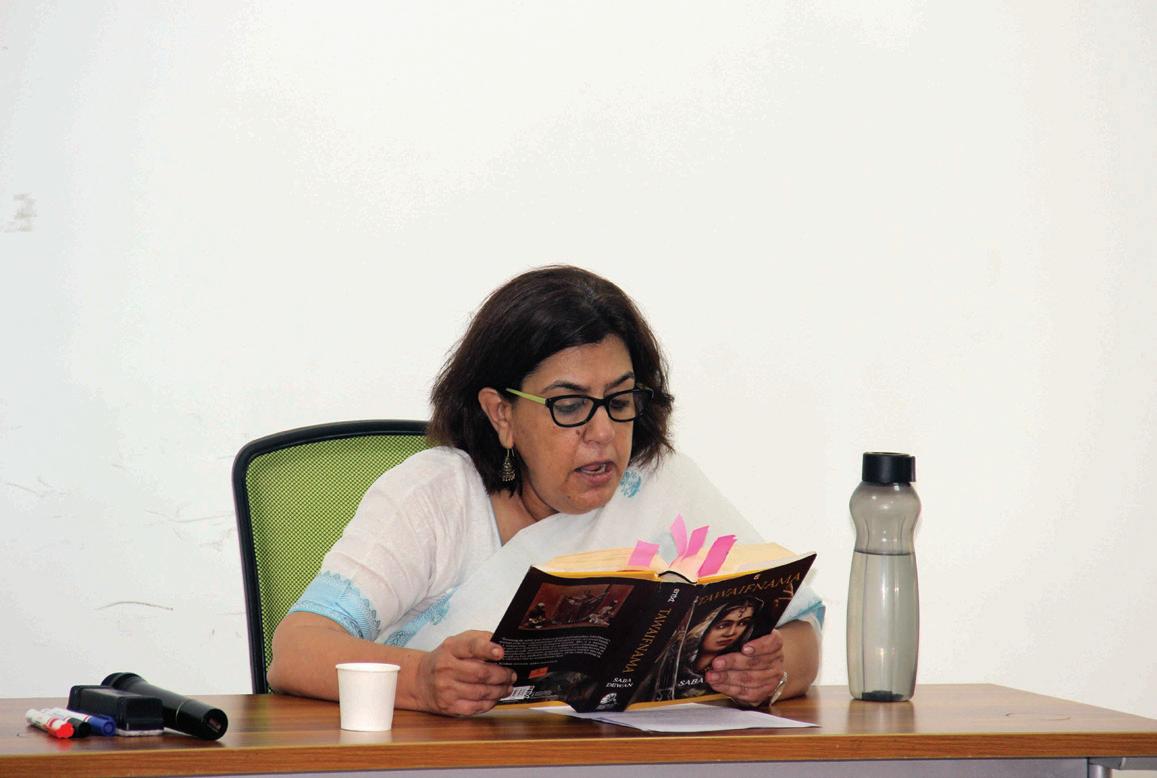
Our students frequently interact with scholars, academicians, and industry leaders during the academic session. Here is a glimpse of guest speakers from humanities and social sciences background who have visited the university in the
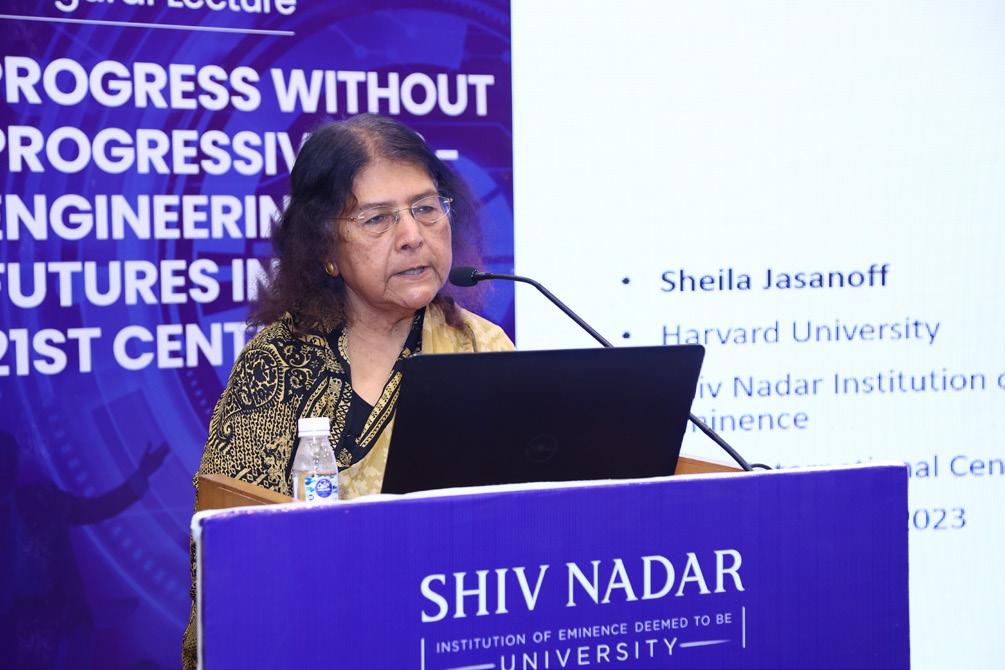
 Filmmaker and Writer
Filmmaker and Writer
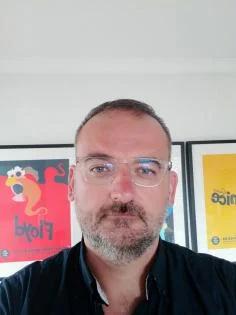
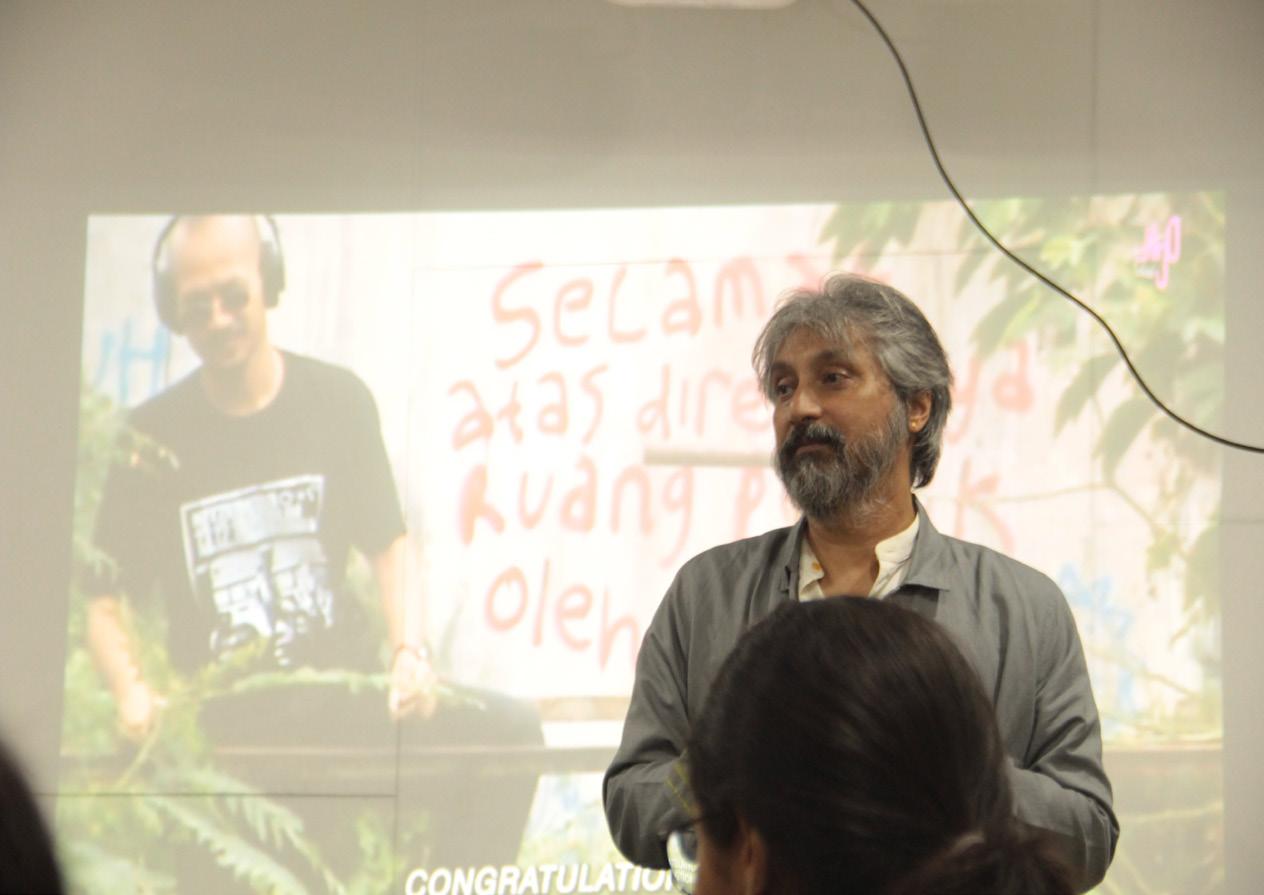 Dr. Isher Ahluwalia Chairperson, ICRIER
Dr. Isher Ahluwalia Chairperson, ICRIER
M
Executive Director,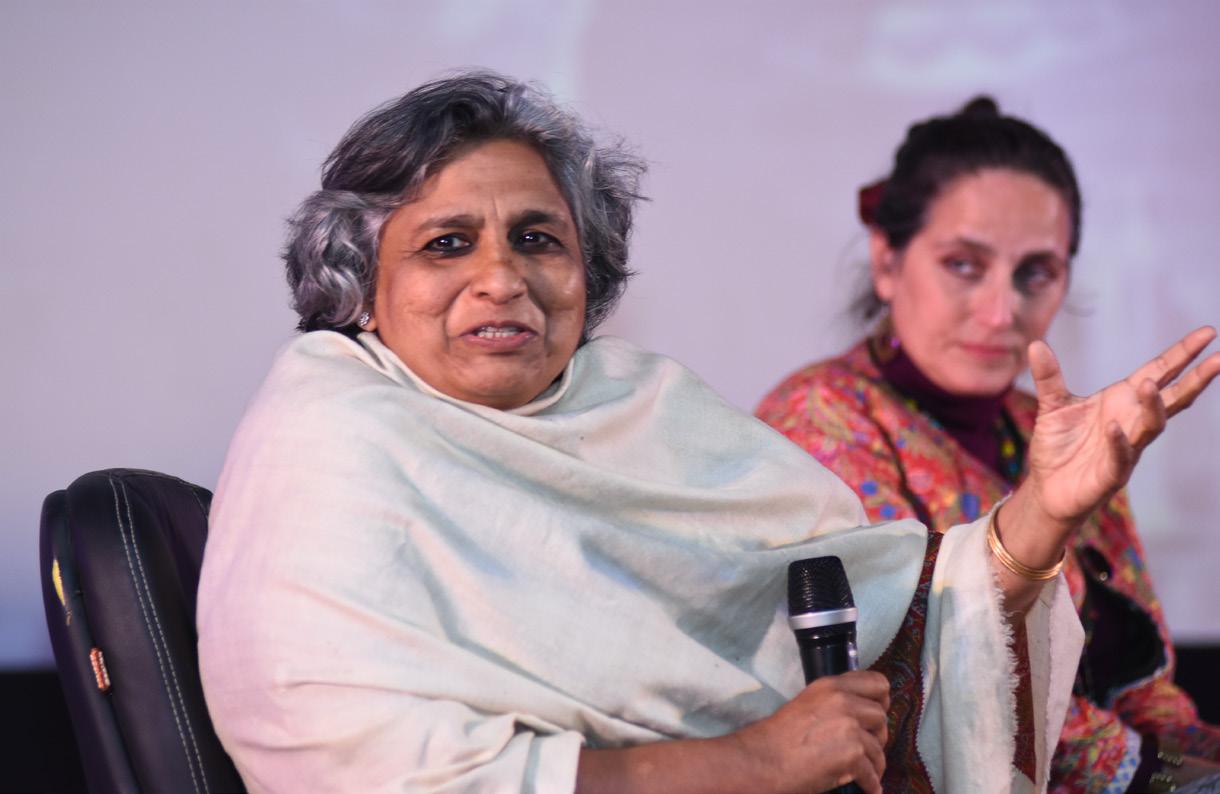
The Naz Foundation
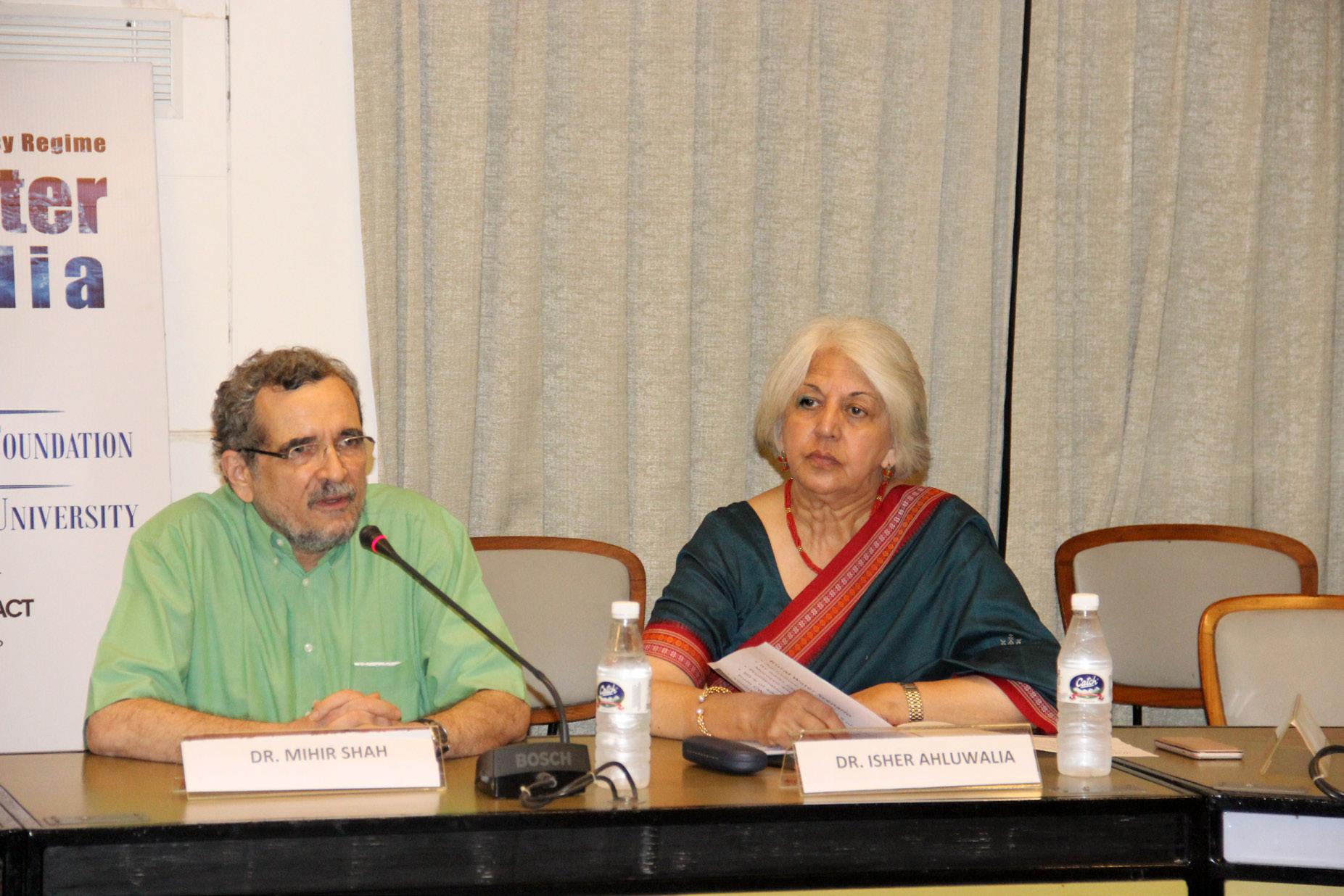
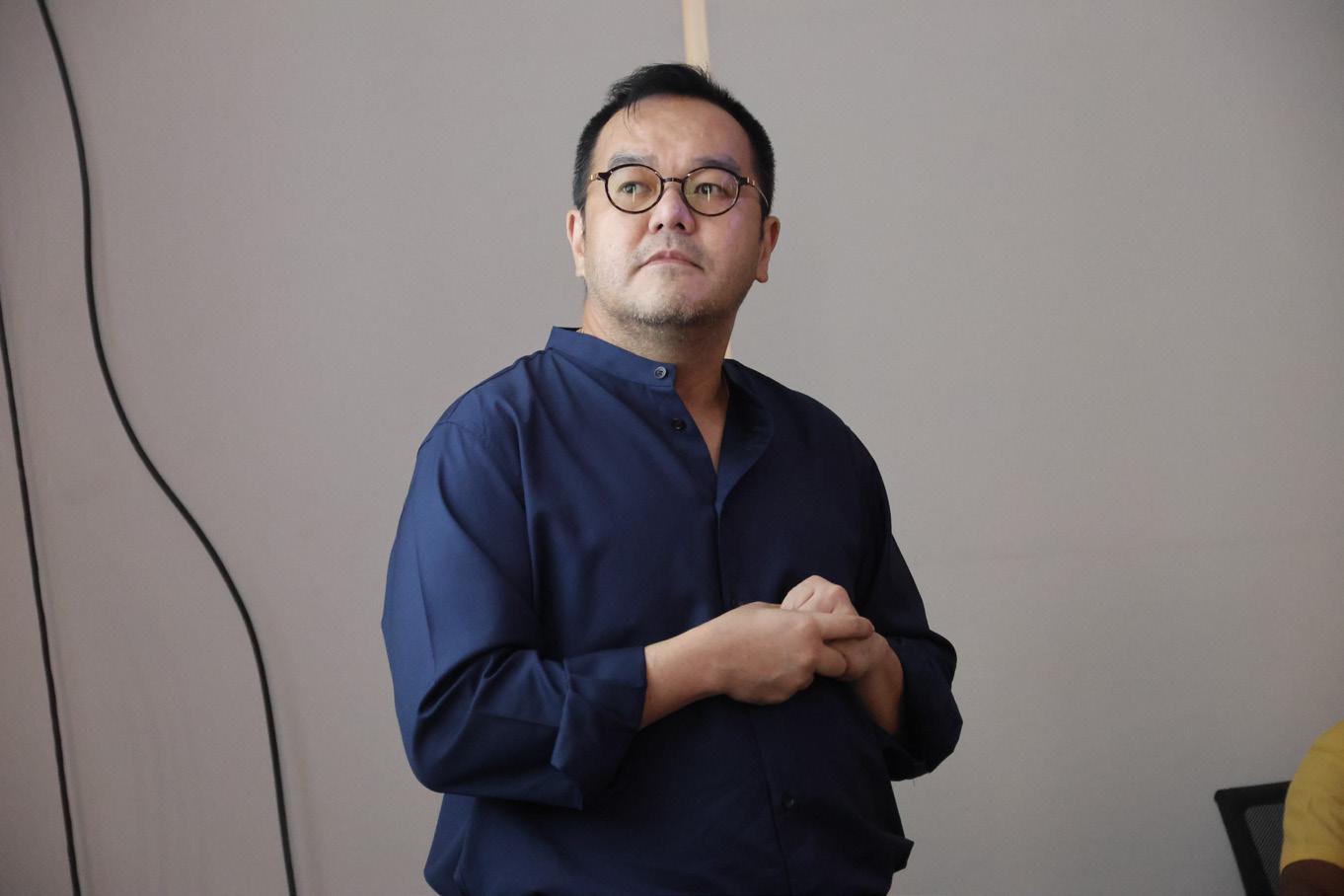
Dr. Andreas Teoh Committee member of the Asia Society Museum, New York and the Tate Modern
Mr. Jeebesh Bagchi, Artist at Raqs Media Collective Ms. Seba DewanThe pedagogy at SHSS involves combining research with classroom teaching, which is carried out in ways more than one through academic seminars, workshops, events, and outdoor assignments. A few recently held events during the academic session at the School include:
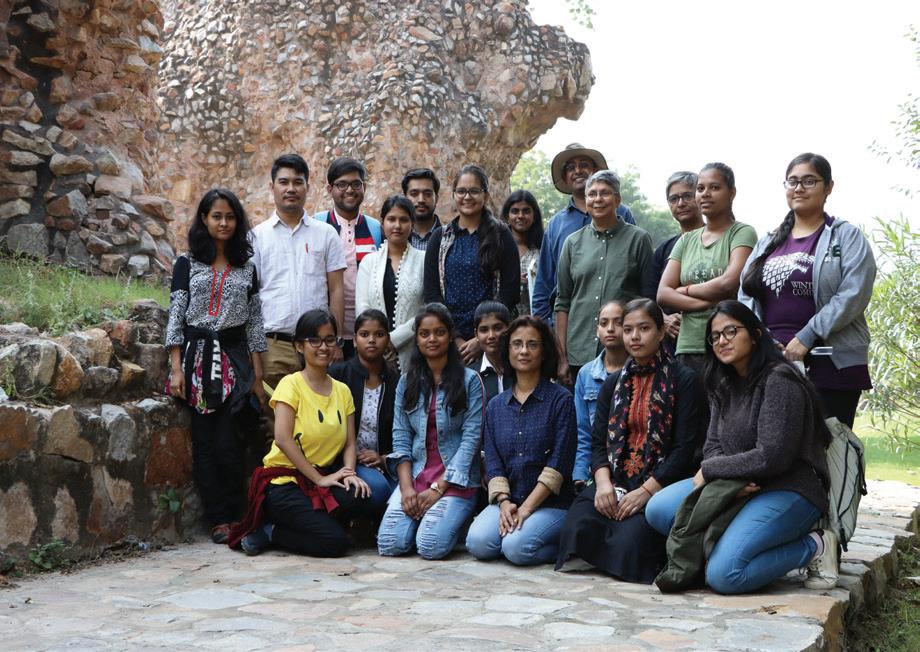
Workshop on 'Archeological Mapping'
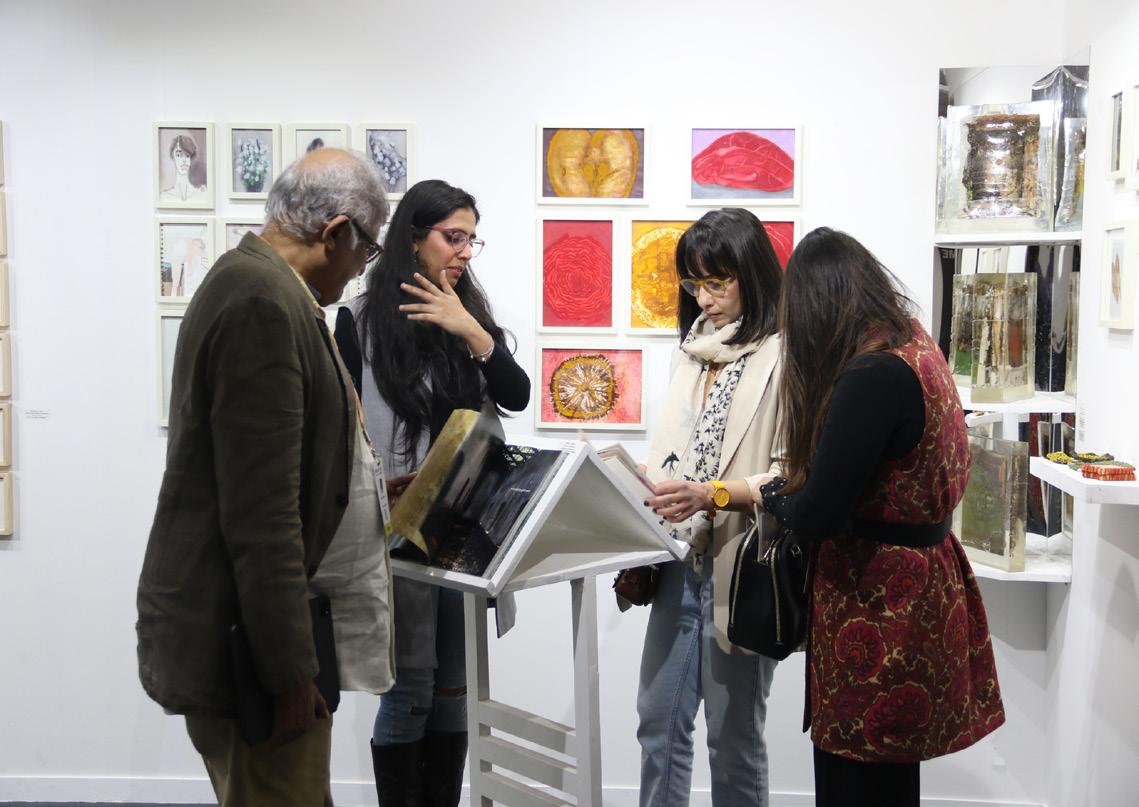
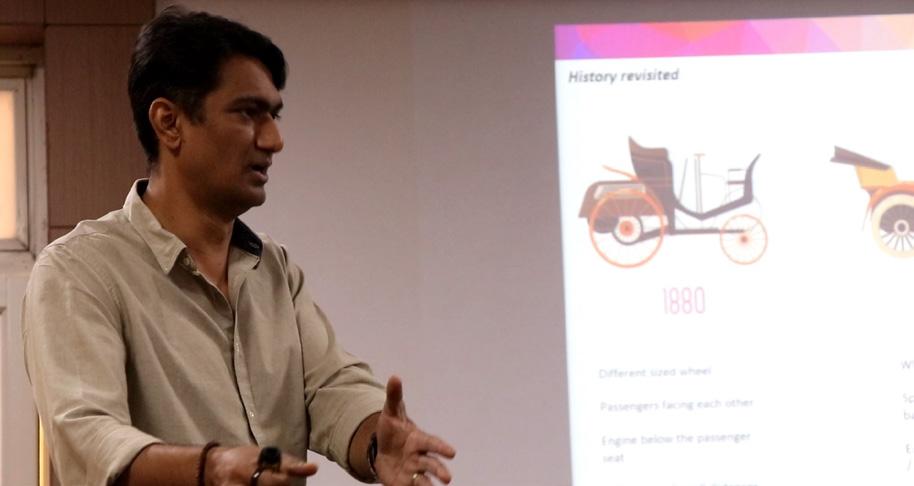
Workshop on 'Automotive Design and Future'
National Symposium on 'Experience Design: Present and Future'
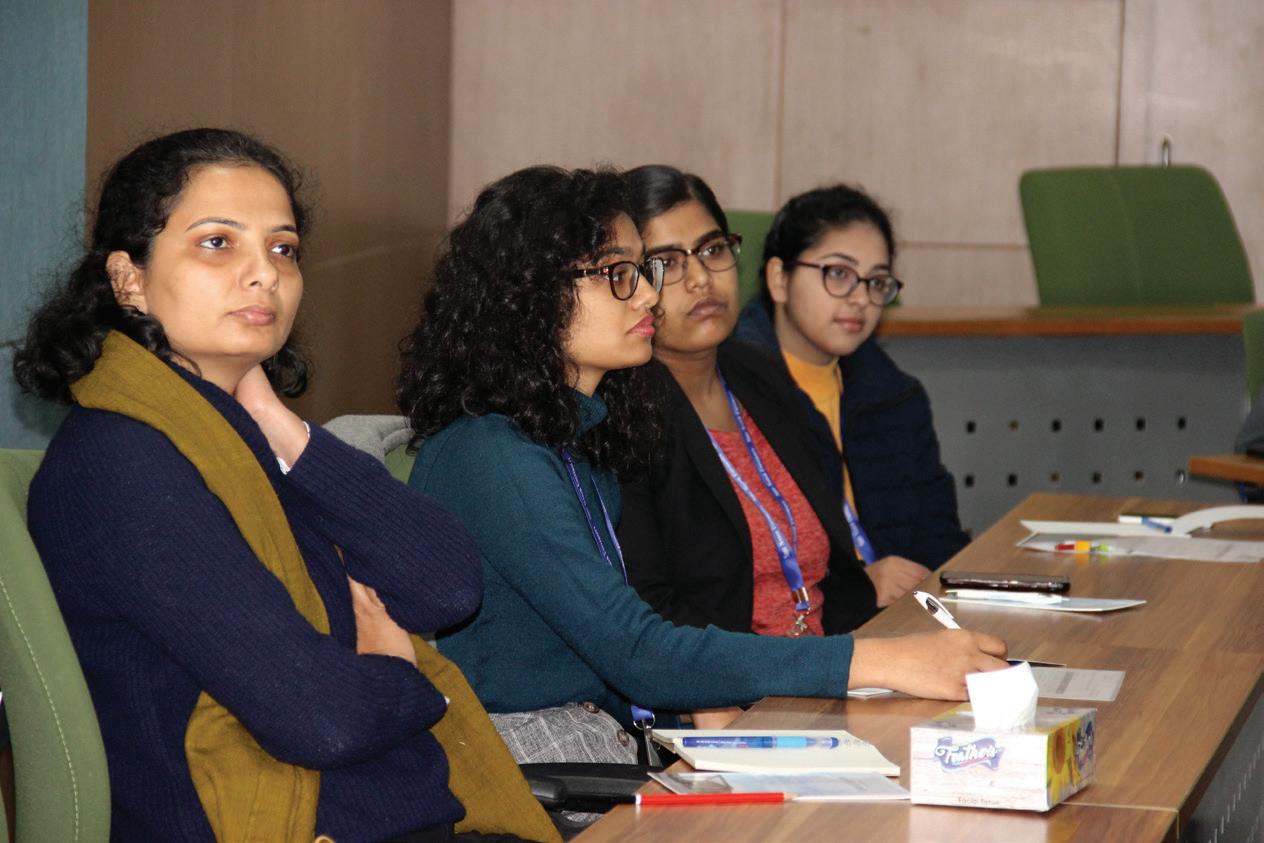
articipation In India Art Fair 2023
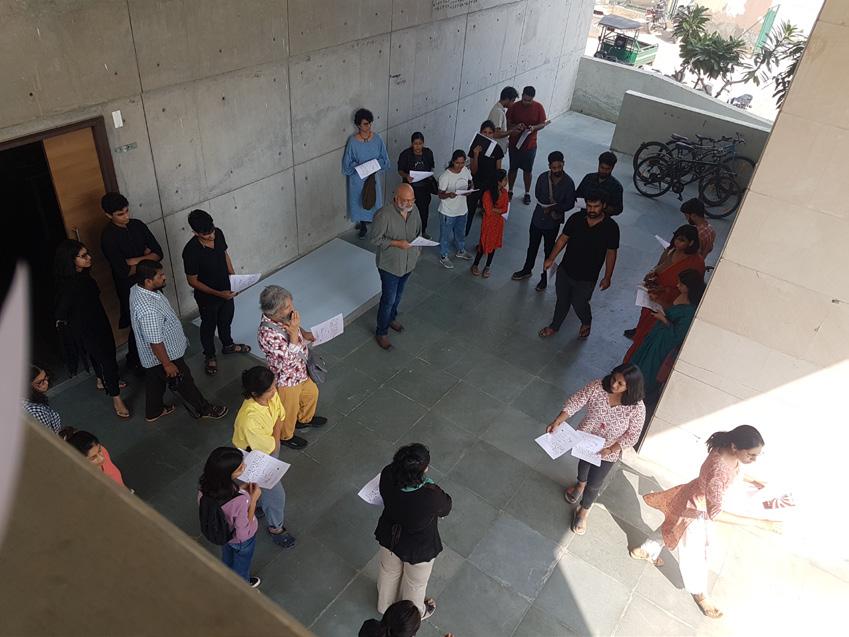
roject Room Presentation
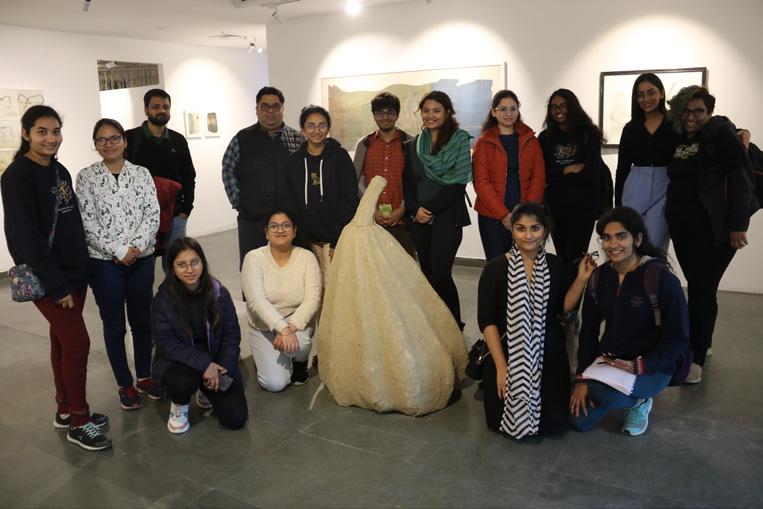
Seeds Fallen Apart Alumni Art Exhibition
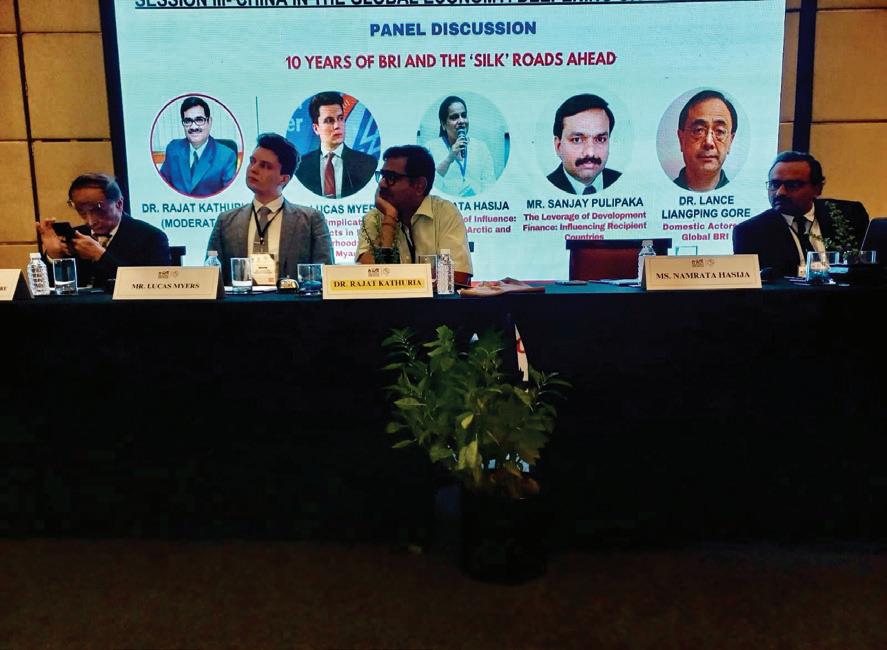
Global Conference on New Sinology in New Delhi, organized by the Organization for Research on China and Asia
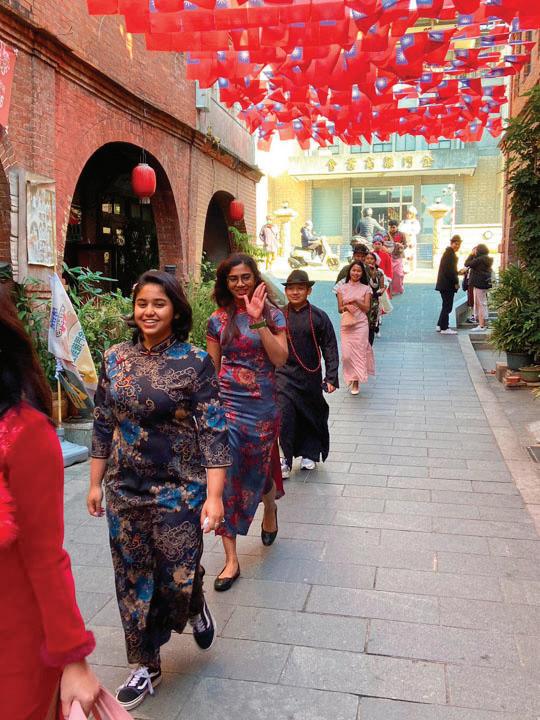
Shiv Nadar University believes that global collaboration can give birth to new knowledge, and carefully handpicks its partners. The university's International Office is continuously working towards building academic collaborations with global peers for joint-research, exchange of ideas and people including student and faculty mobility.
ASIAN INSTITUTE OF TECHNOLOGY, THAILAND
CENTER FOR SOUTH ASIAN STUDIES, UNIVERSITY OF MICHIGAN, USA
CNCSI, DURHAM, ENGLAND
EPF GRADUATE SCHOOL OF ENGINEERING, FRANCE
GDANSK UNIVERSITY OF TECHNOLOGY, POLAND
MONDRAGON UNIVERSITY, SPAIN
NATIONAL QUEMOY UNIVERSITY, TAIWAN
NATIONAL YUNLIN UNIVERSITY OF SCIENCE AND TECHNOLOGY, TAIWAN
TAIPEI ECONOMIC AND CULTURAL CENTER
TAMKANG UNIVERSITY, TAIWAN
UNIVERSITY OF BOLOGNA, ITALY
UNIVERSITY OF CALIFORNIA BERKELEY, USA
UNIVERSITY OF ESSEX, ENGLAND
UNIVERSITY OF QUEENSLAND, AUSTRALIA
UNIVERSITY OF WISCONSIN MADISON, USA
VAN LAANG UNIVERSITY, VIETNAM
The Career Development Center (CDC) supports students in shaping and managing their careers effectively by helping them identify career choices, providing insights into the latest industry trends, arranging industry conclaves, industry visits, and boot camps.
Since our first batch graduated in 2015, our students have showcased high academic caliber by securing admissions in leading national and international universities like Cambridge, Northwestern, Boston, and Massachusetts.
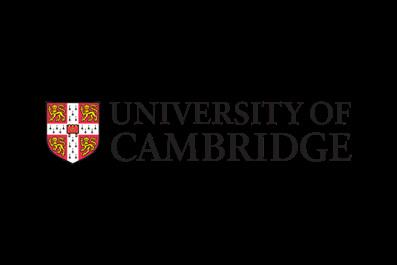

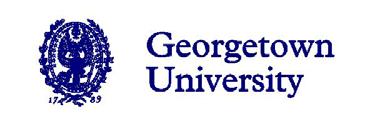


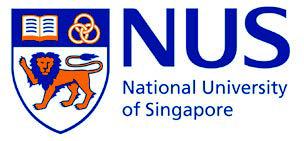



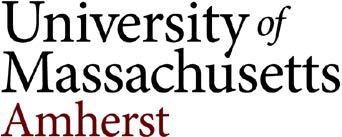
A majority of the batches have also received job offers from leading multinational companies. Some of the top recruiters for SHSS students include Times Internet, Piramal Foundation, Zycus, and Zomato.

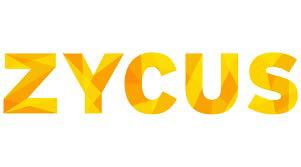

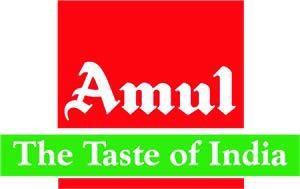

* Select Industry and Academic Placements


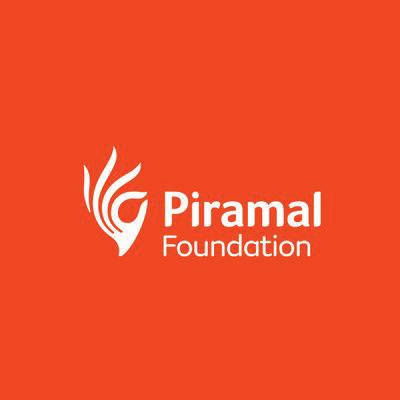


Shiv Nadar University offers a robust academic environment and an exciting space for community building and the exchange of ideas. Hear some of our SHSS students share their experience:
Stepping into the Sociology department at SNU is like entering a vibrant community where ideas flow freely, discussions spark constructive thought, and professors foster a passion for understanding society. The close-knit and diverse academic collective creates an inclusive atmosphere that makes one feel valued and inspired.
The small class size and the fact that I could work on my research thesis even as an undergraduate student, helped me choose Shiv Nadar IoE over other institutions.
We engage with the text more thoroughly. We are not memorising facts, but we are constantly thinking and building our own arguments and looking for evidence to back it up.
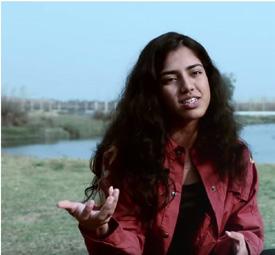 Chandasi Ganguly B.A. (Research) in English
Chandasi Ganguly B.A. (Research) in English
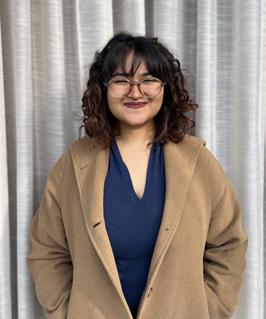
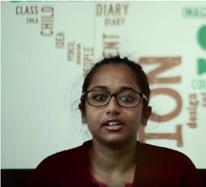
Harini Kapali
B.A. (Research) Sociology, 2025
B.Sc.(Research) in Economics
The faculty do not impose their way of thinking on us; they give us the tools that enable us to think for ourselves.
MFA at Shiv Nadar University provides exposure within the art realm through engagement with the faculty who are practicing contemporary artists. The interdisciplinary approach helped integrating subjects like philosophy, English literature, sociology along with artistic practice.
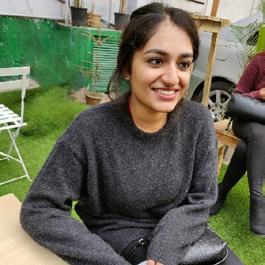
B.A. (Research) in International Relations
Department of Art, Media and Performance

As a research institution, Shiv Nadar University has garnered much attention from national and international media. Various media houses have covered the outstanding research and discoveries led by the Shiv Nadar University faculty and researchers. Here, we give you a glimpse of the headlines we have been making:

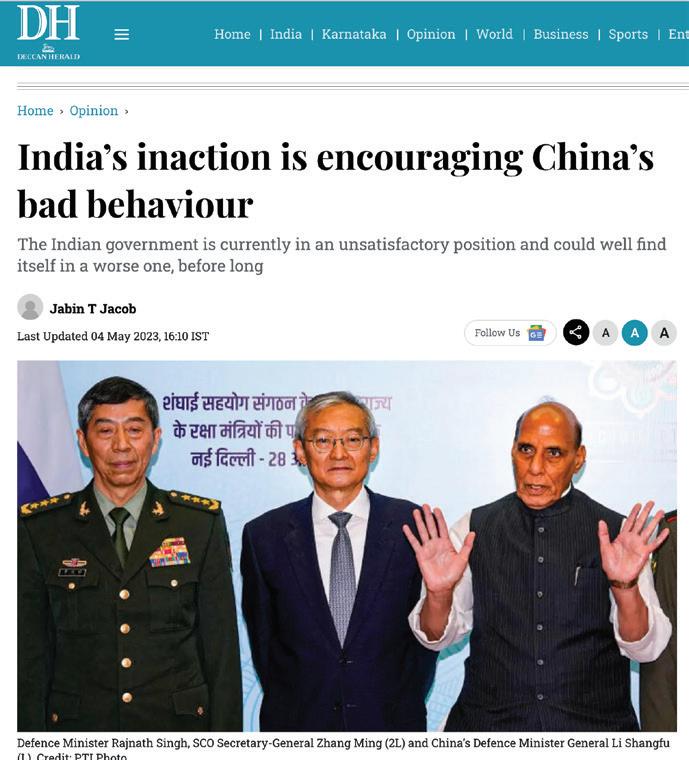
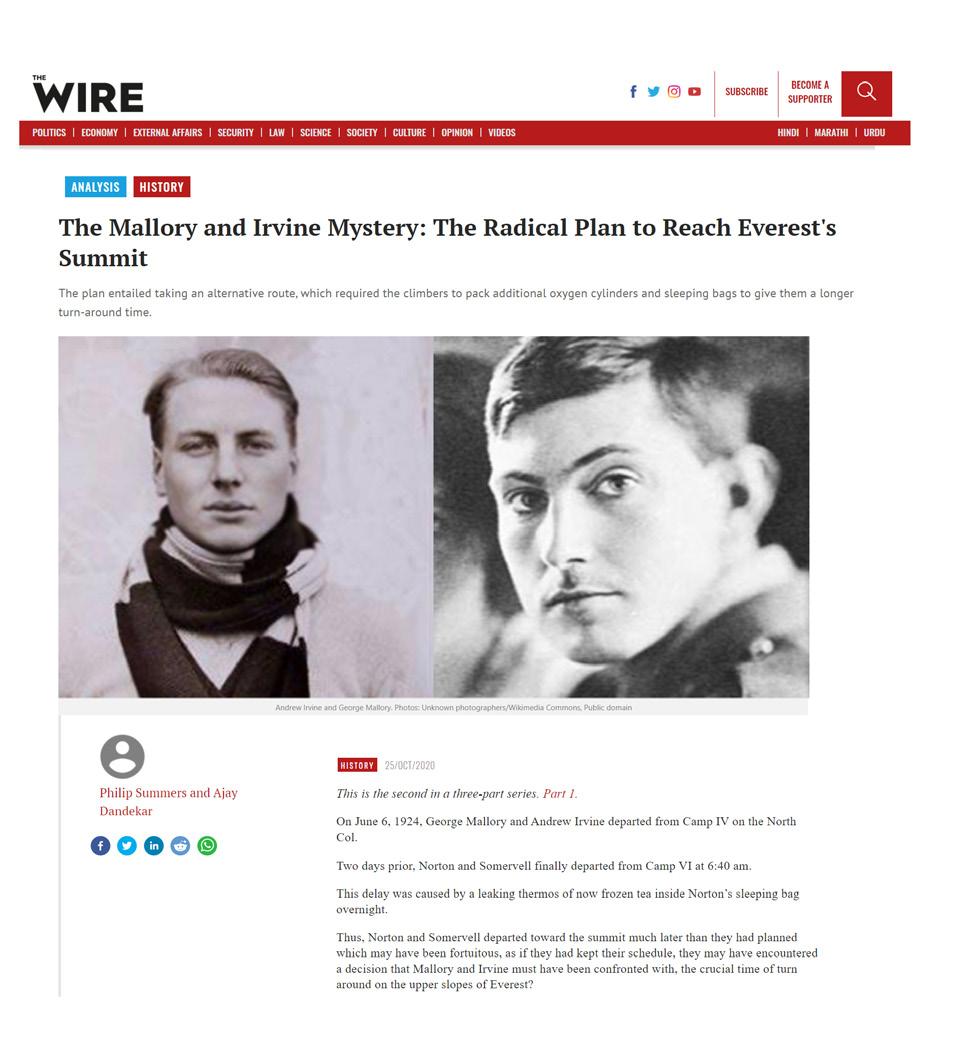
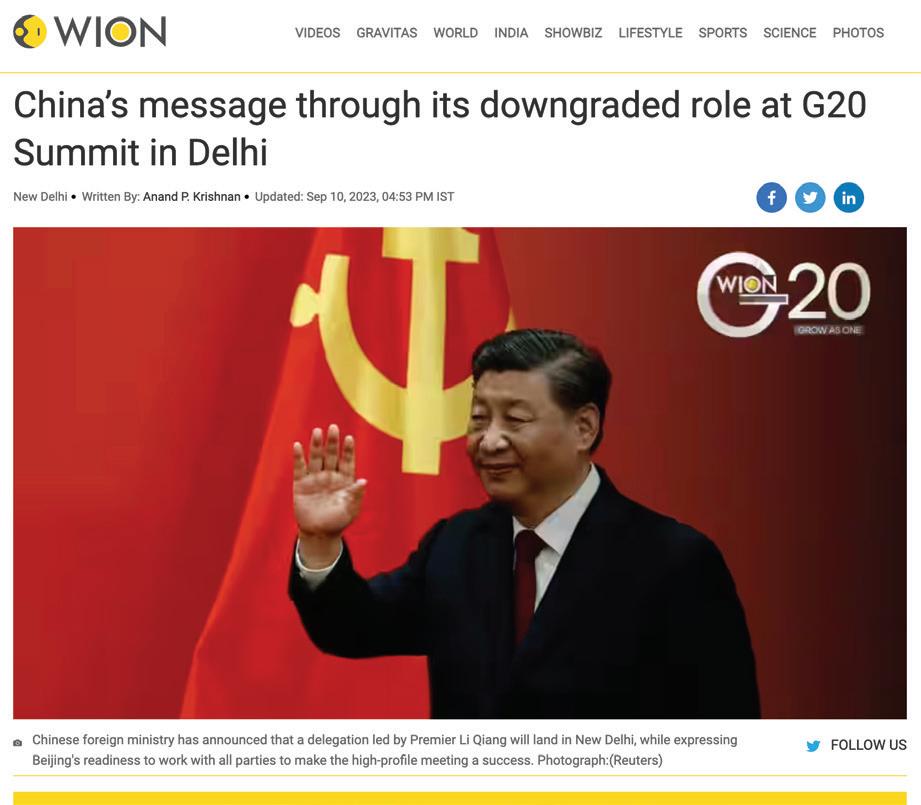
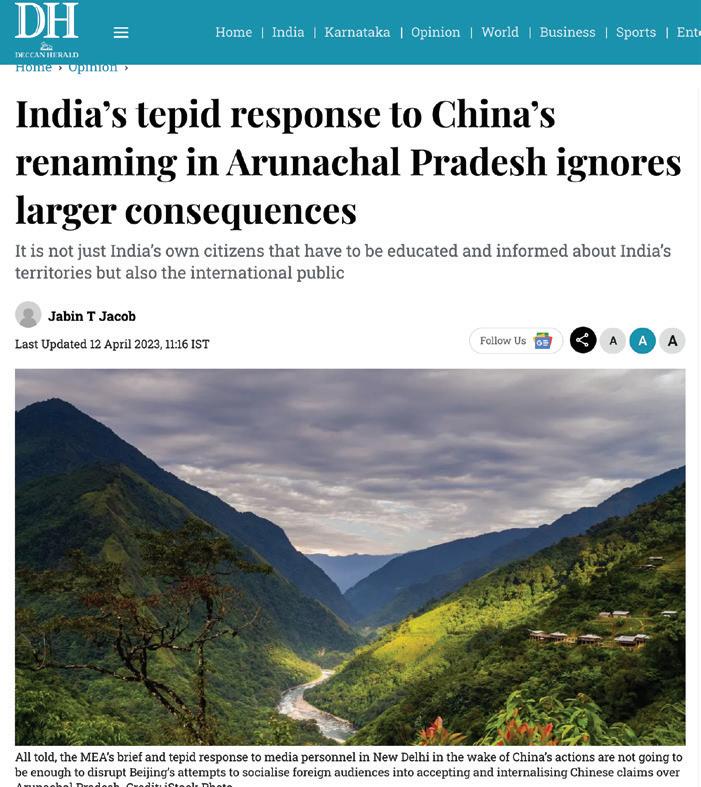
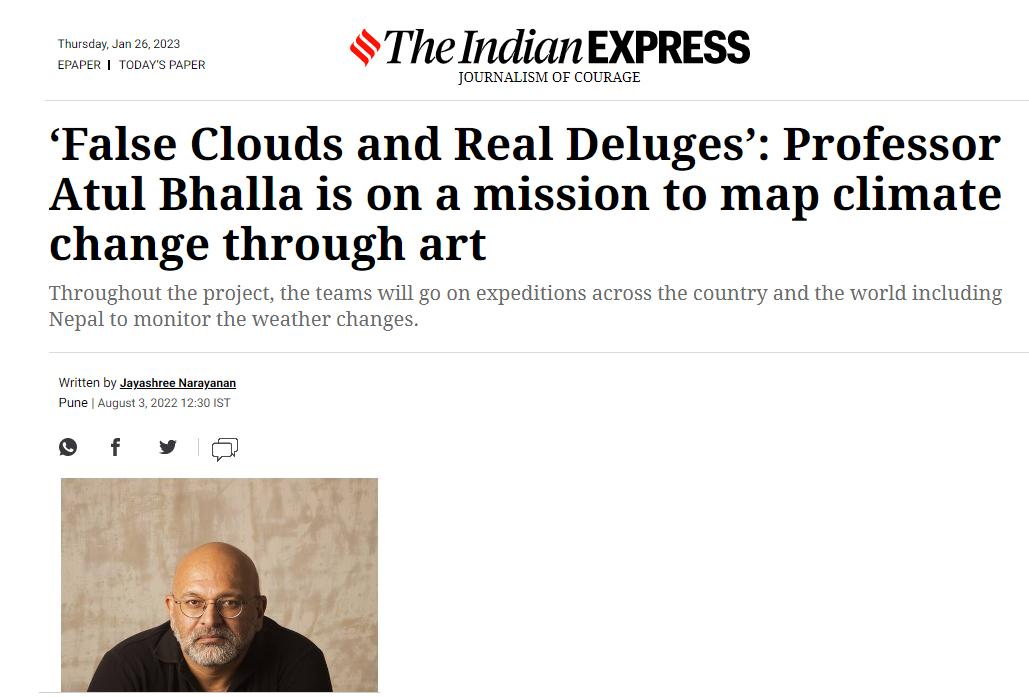
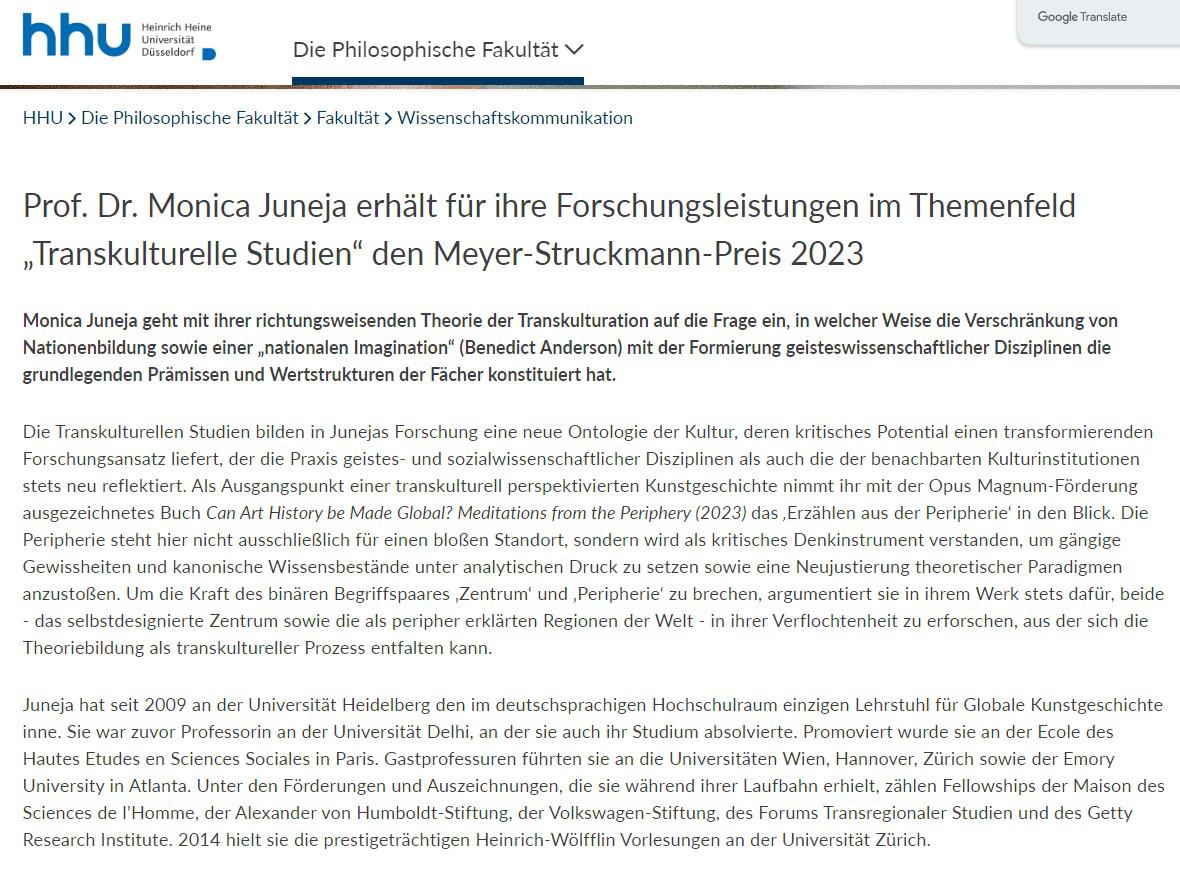

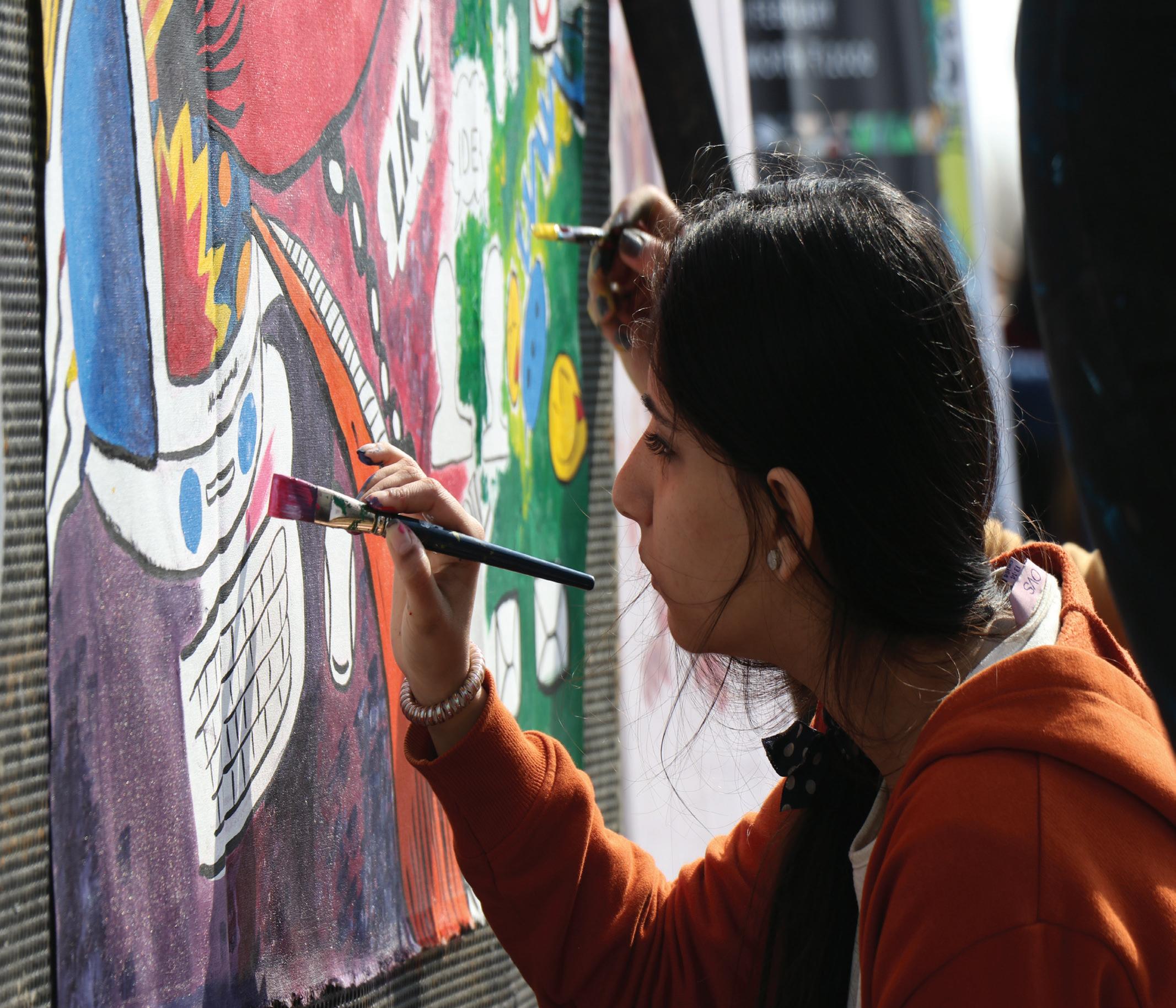
Shiv Nadar University, Delhi-NCR is a fully residential institution with well-equipped laboratories, smart classrooms, and a state-of-the-art library. In its pleasant surroundings, students from across India and abroad share their experiences and values, and gain an understanding of different cultures. Students engage in activities beyond the classroom in team-based projects. They form clubs and societies, organise festivals and events, participate in university administration, take up social projects around the campus, and pursue sports and hobbies. There are currently over 50 vibrant student societies, ranging from the curriculum-related Robotics Club - Roboyantriki to the Photography Society - Visually SNU, which periodically conduct events, talks, and competitions to actively engage students not only from Shiv Nadar University ut also from different parts of the country.
155 Labs and Studios
20+ Sports Courts
120,000 sq.ft. Indoor Sports Complex
50+ Clubs and Societies
400+ On Campus Jobs Offered
28 States and 8 UTs represented by students
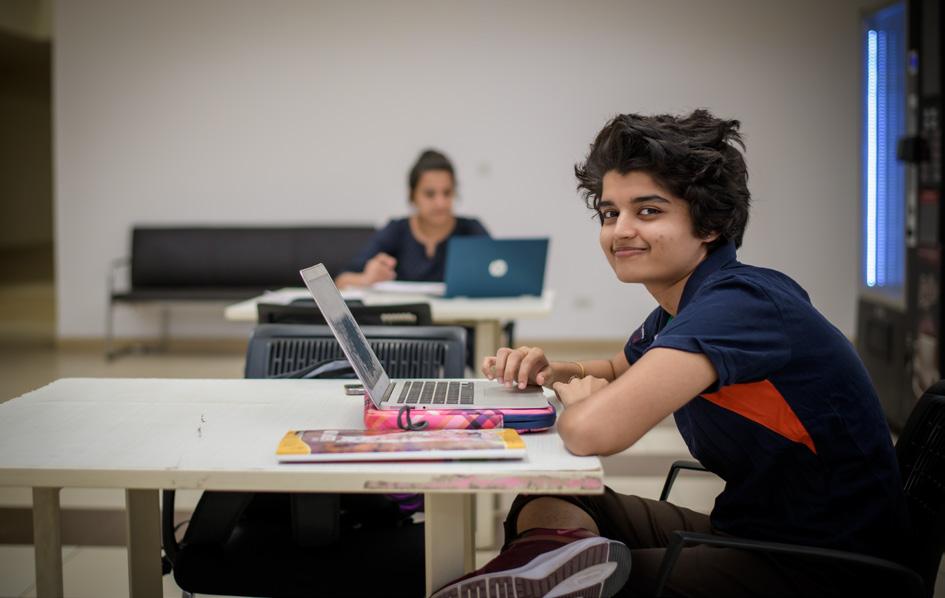
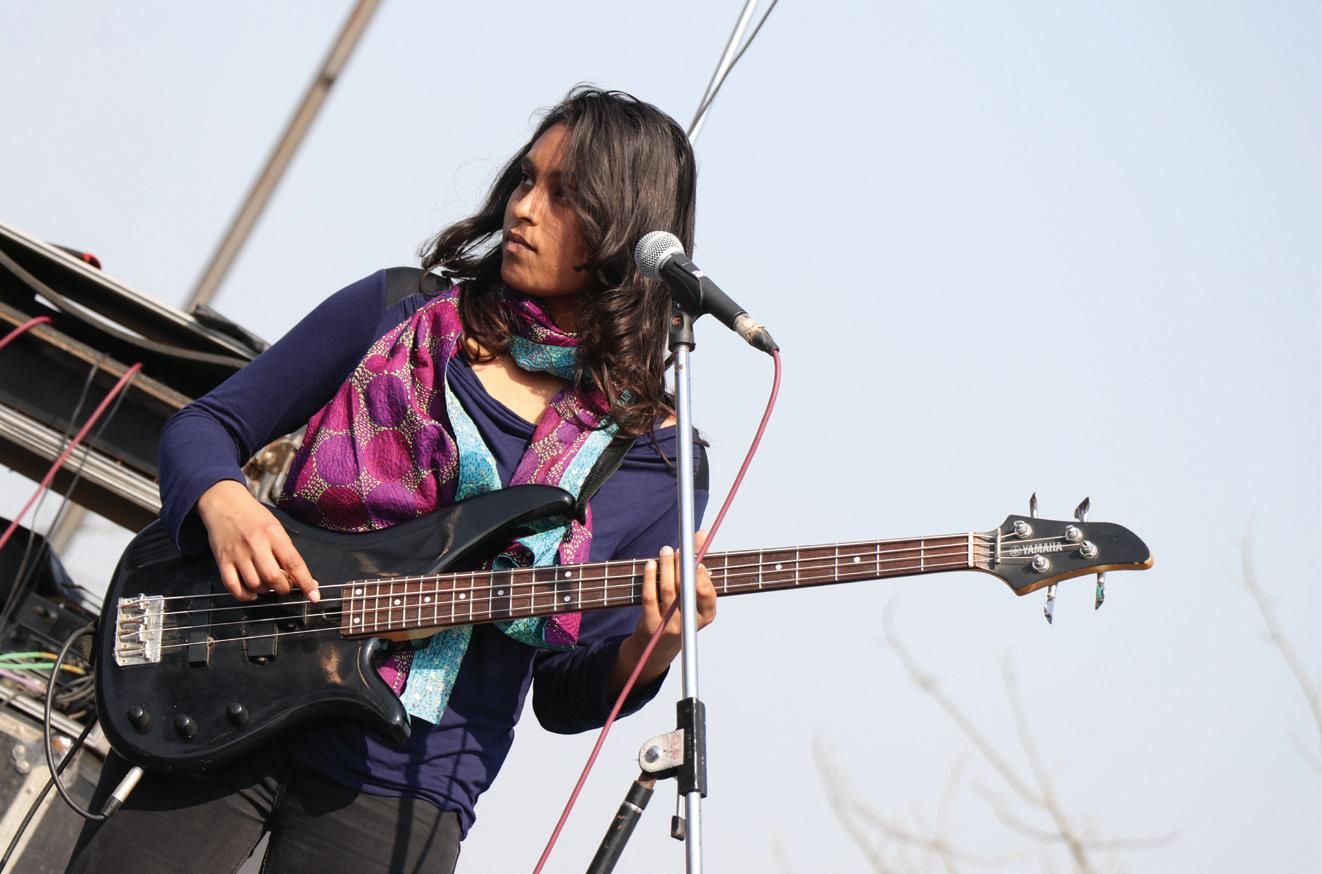
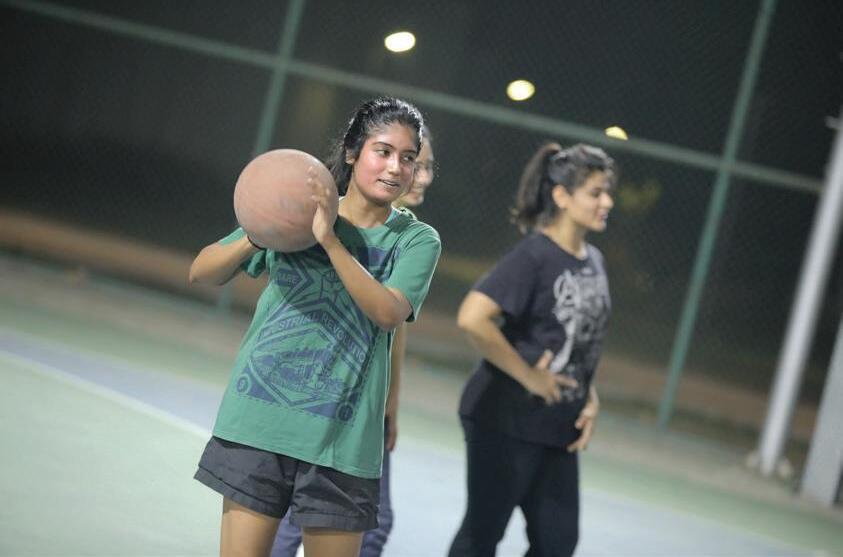

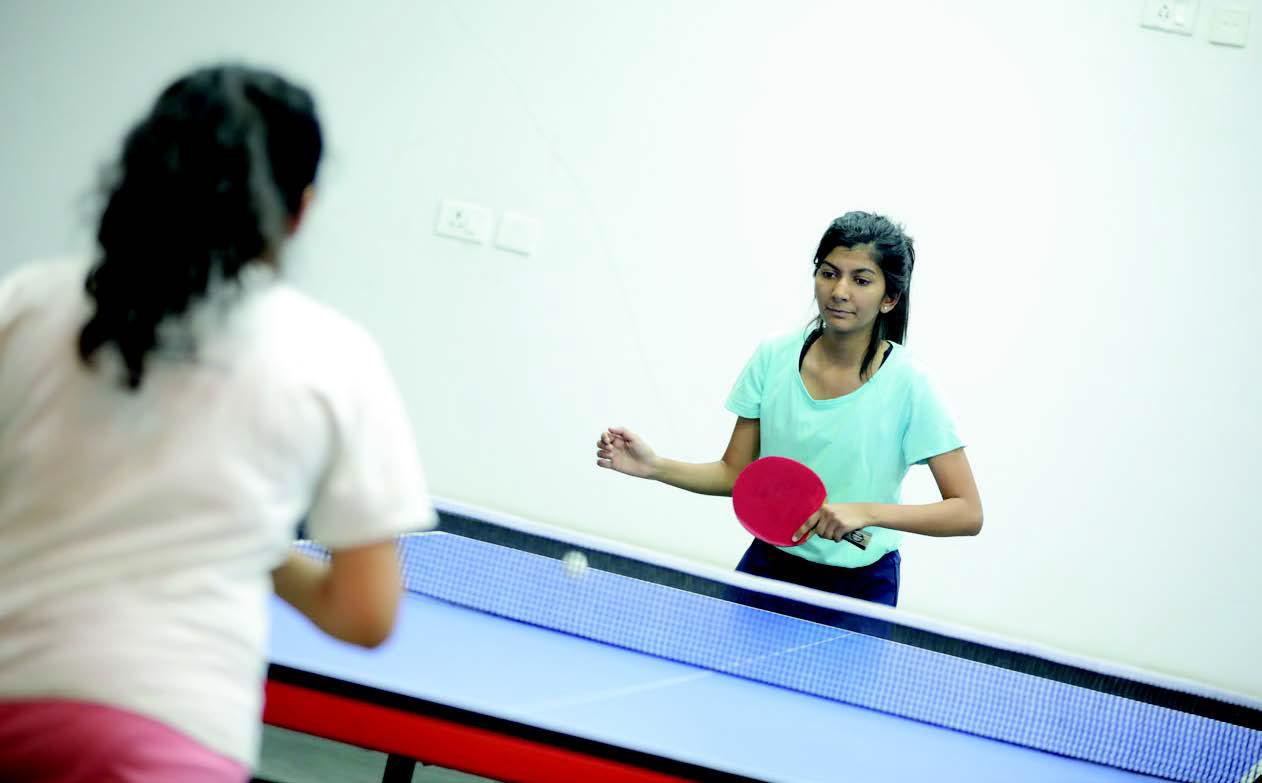
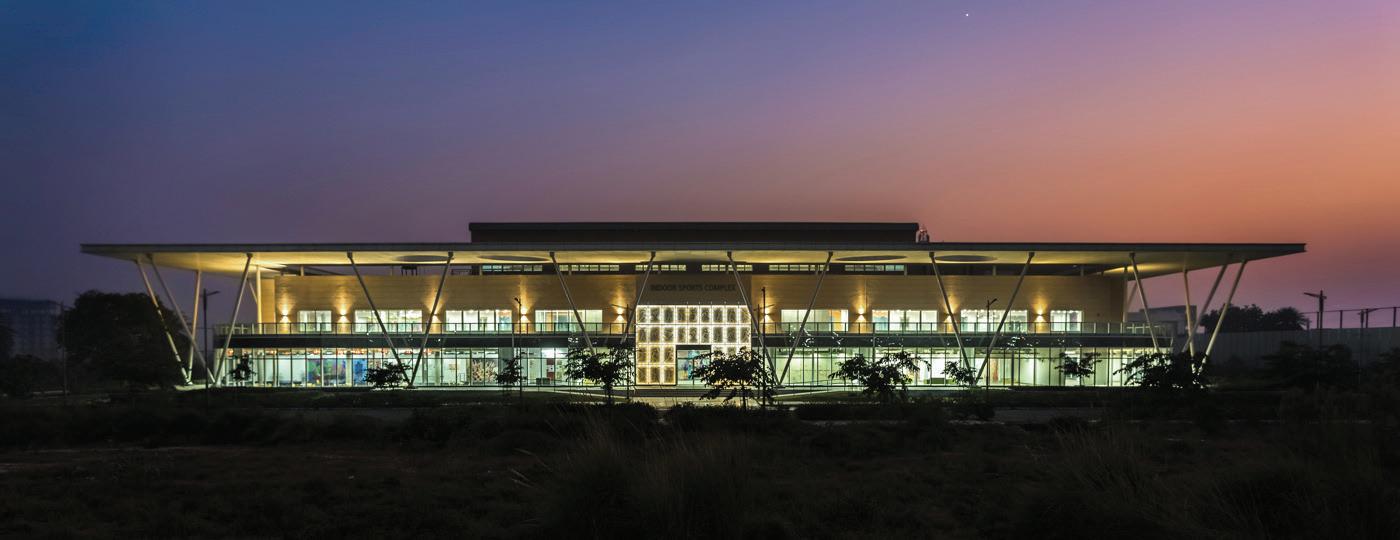
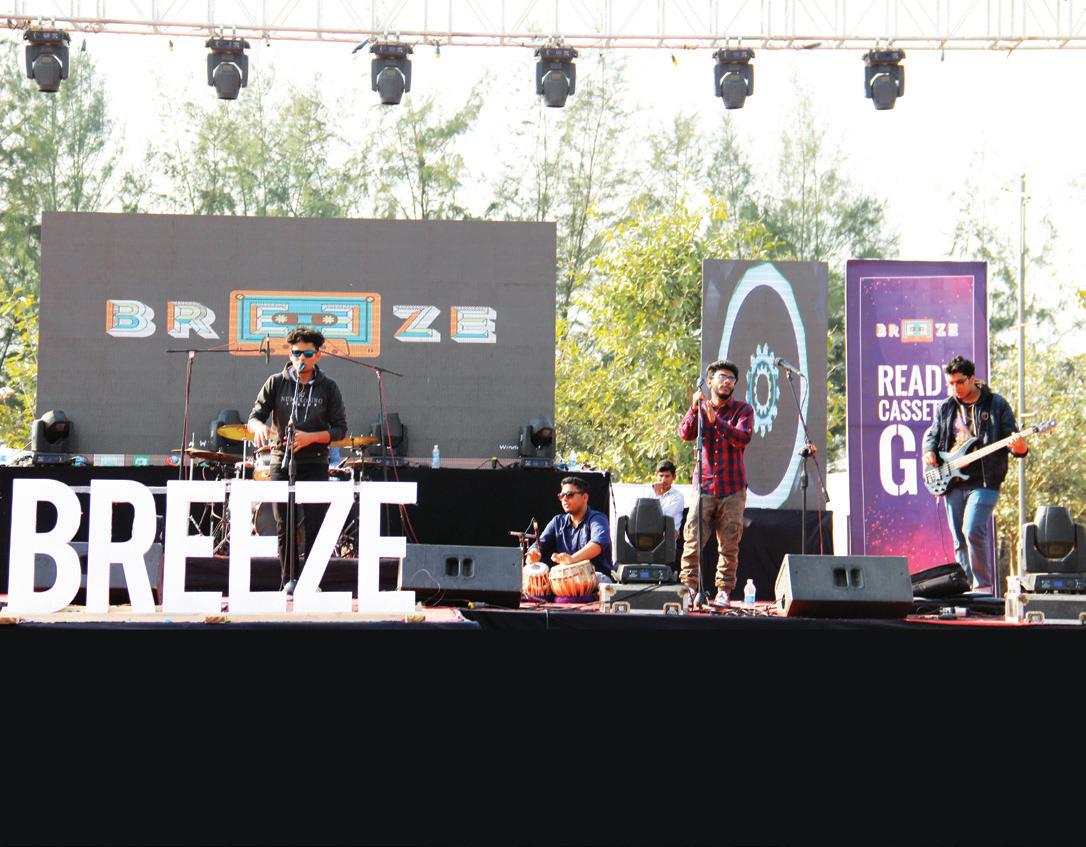
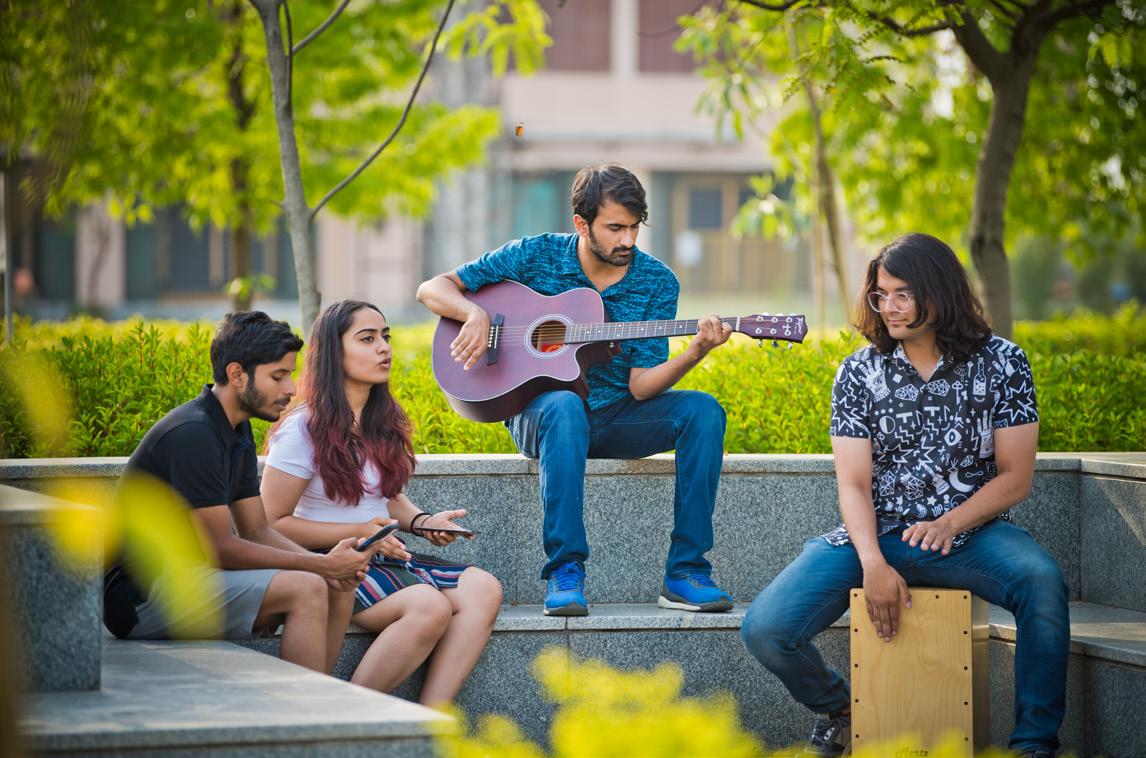
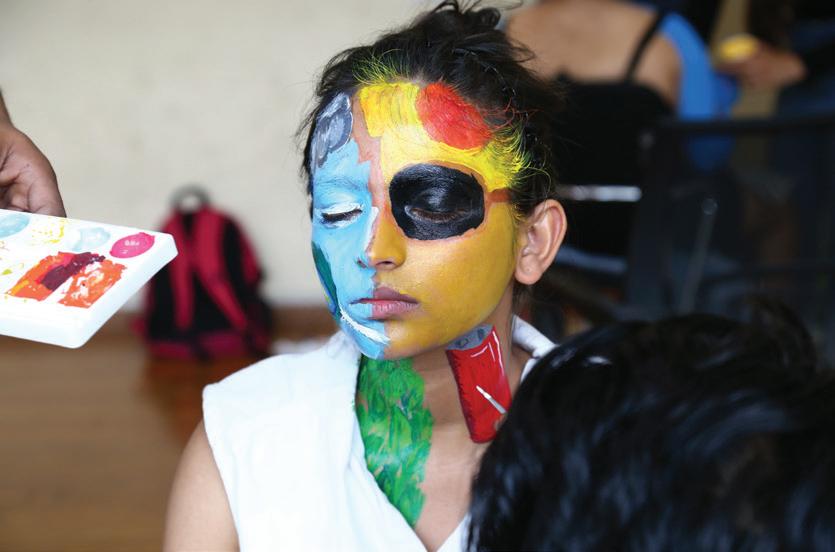
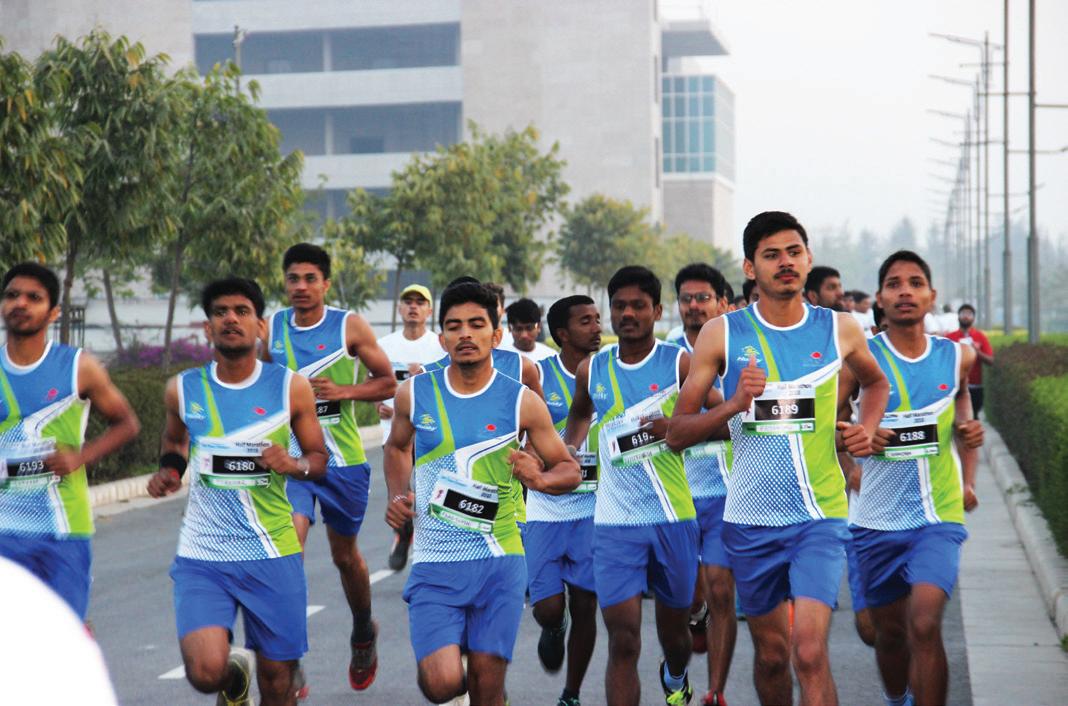
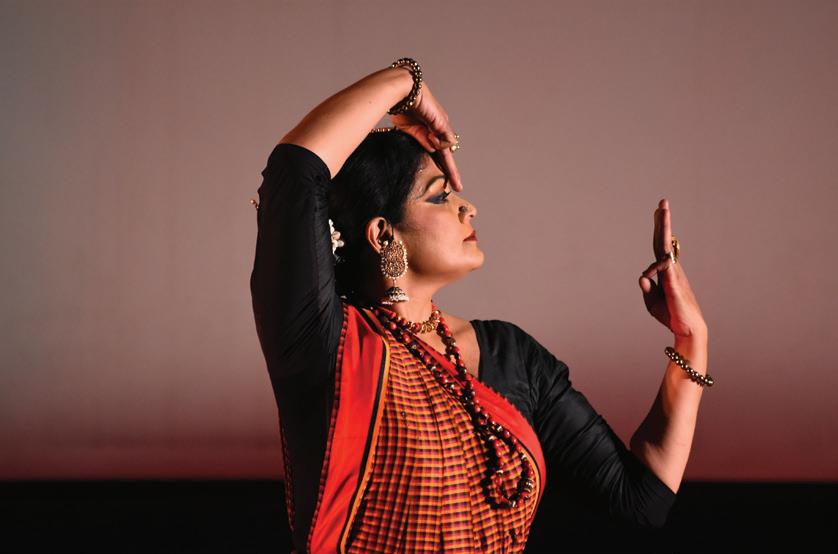
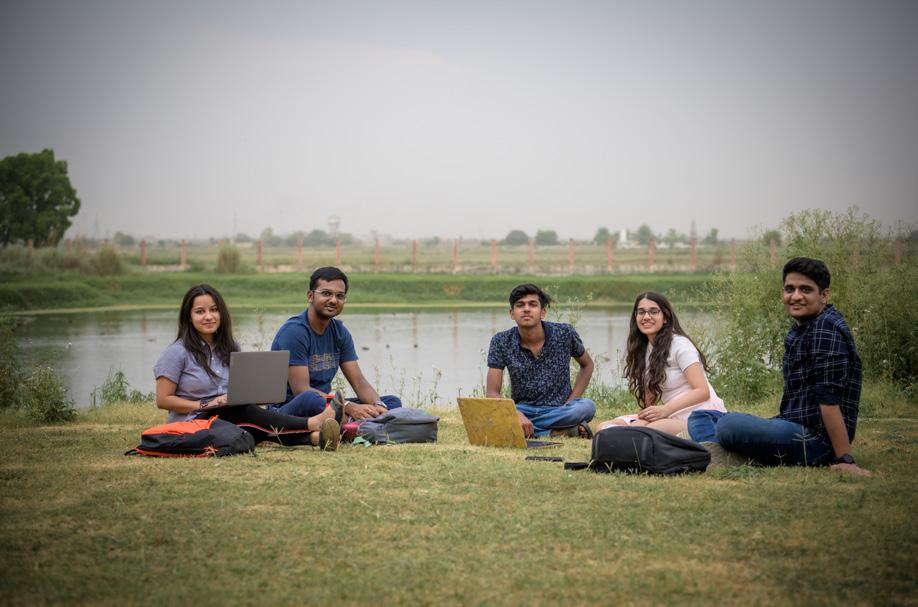
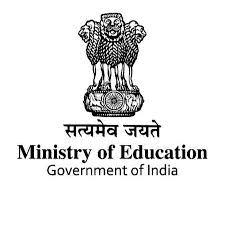
Recognised as an Institution of Eminence 1 of the only 4 private universities in the country to be designated as an Institution of Eminence by the Government of India
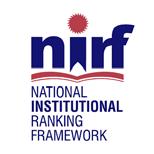
National Institutional Ranking Framework (NIRF) Youngest university to be ranked among the top 100 of NIRF, 7 years in a row

QS Asia Ranking 2024 41 in India; amongst top 36% in Asia

#1 India’s best young university (Careers 360, 2023 ranking of private universities) Shiv Nadar University NH 91, Tehsil Dadri, Gautam Buddha Nagar, Uttar Pradesh - 201314, India
#21 Biological Sciences #28 Chemistry (Nature Index India 2023 ranking of Indian academic institutions)

Global Top 200; India Top 5 SDG 6: Clean water and sanitation Times Higher Impact Ranking 2023

Global Top 300; India Top 6 SDG 7: Alternative and Affordable Energy Times Higher Impact Ranking 2023
